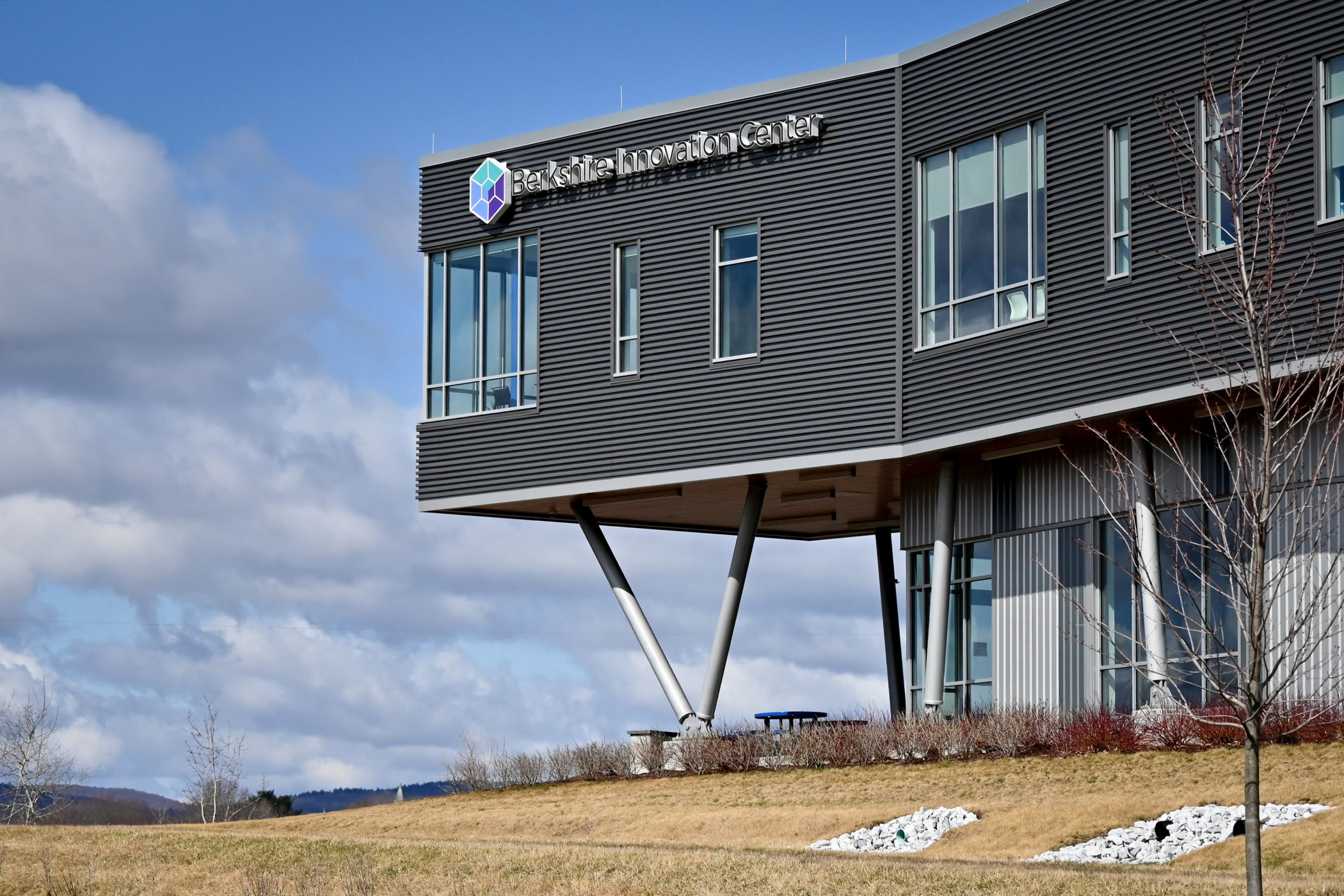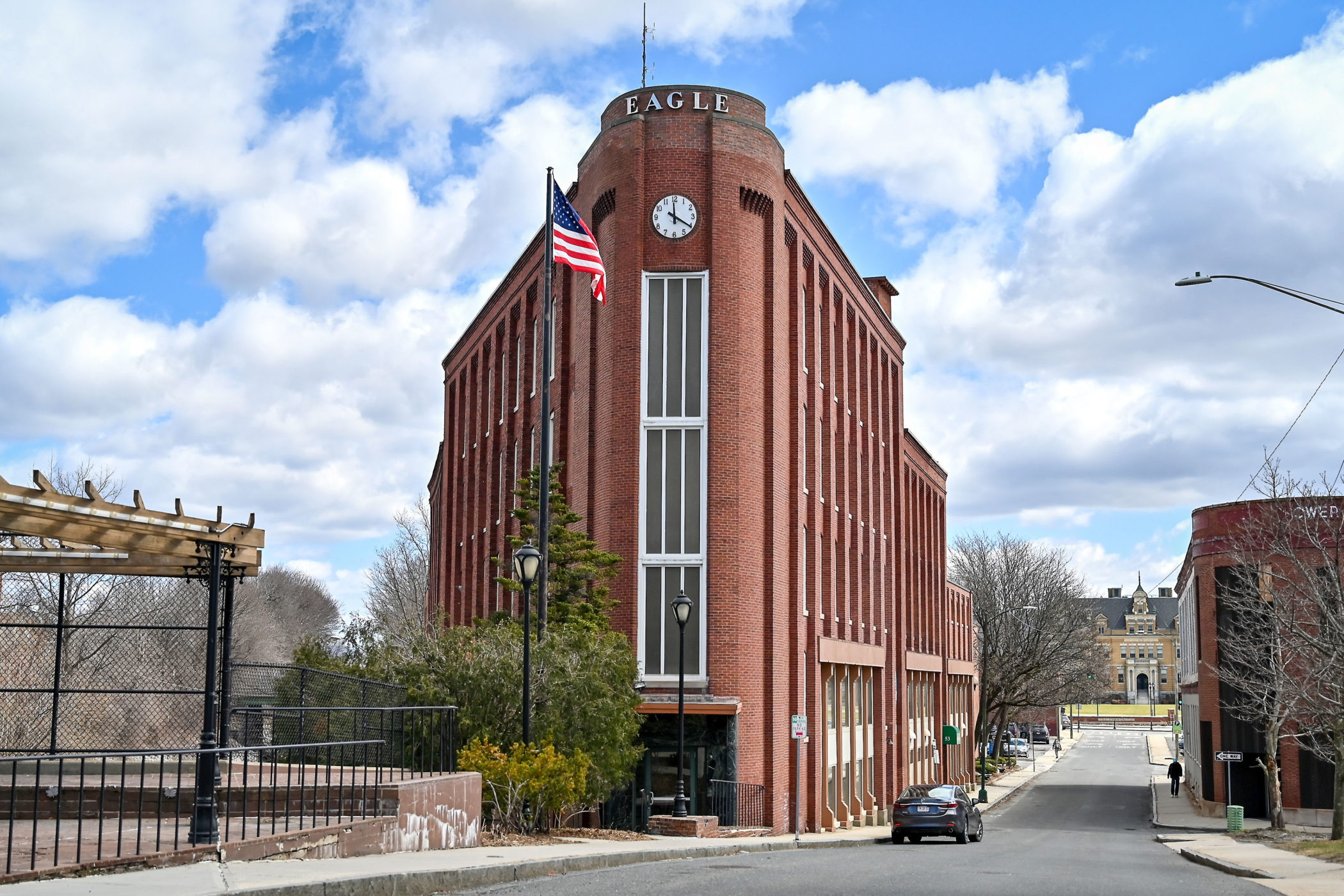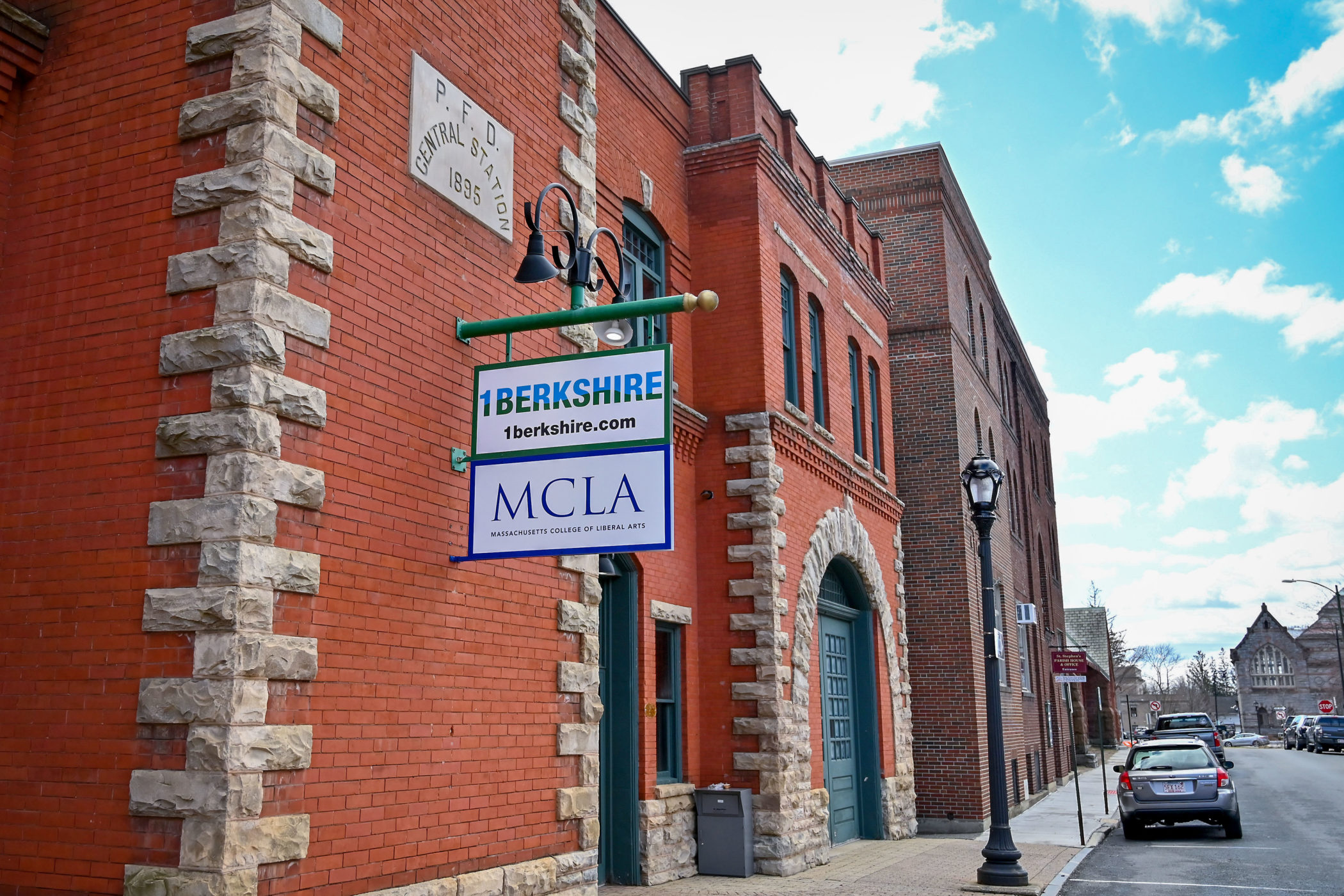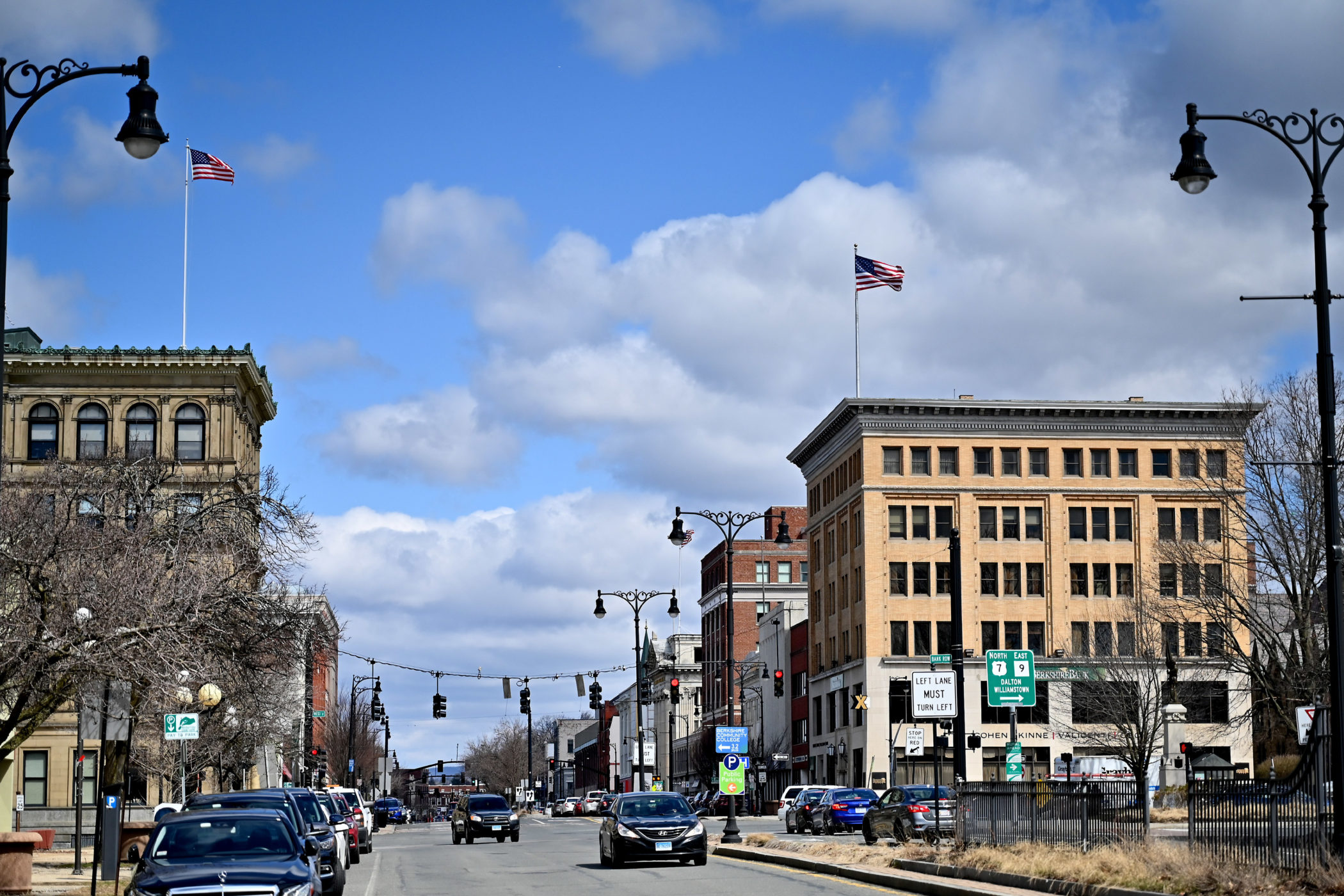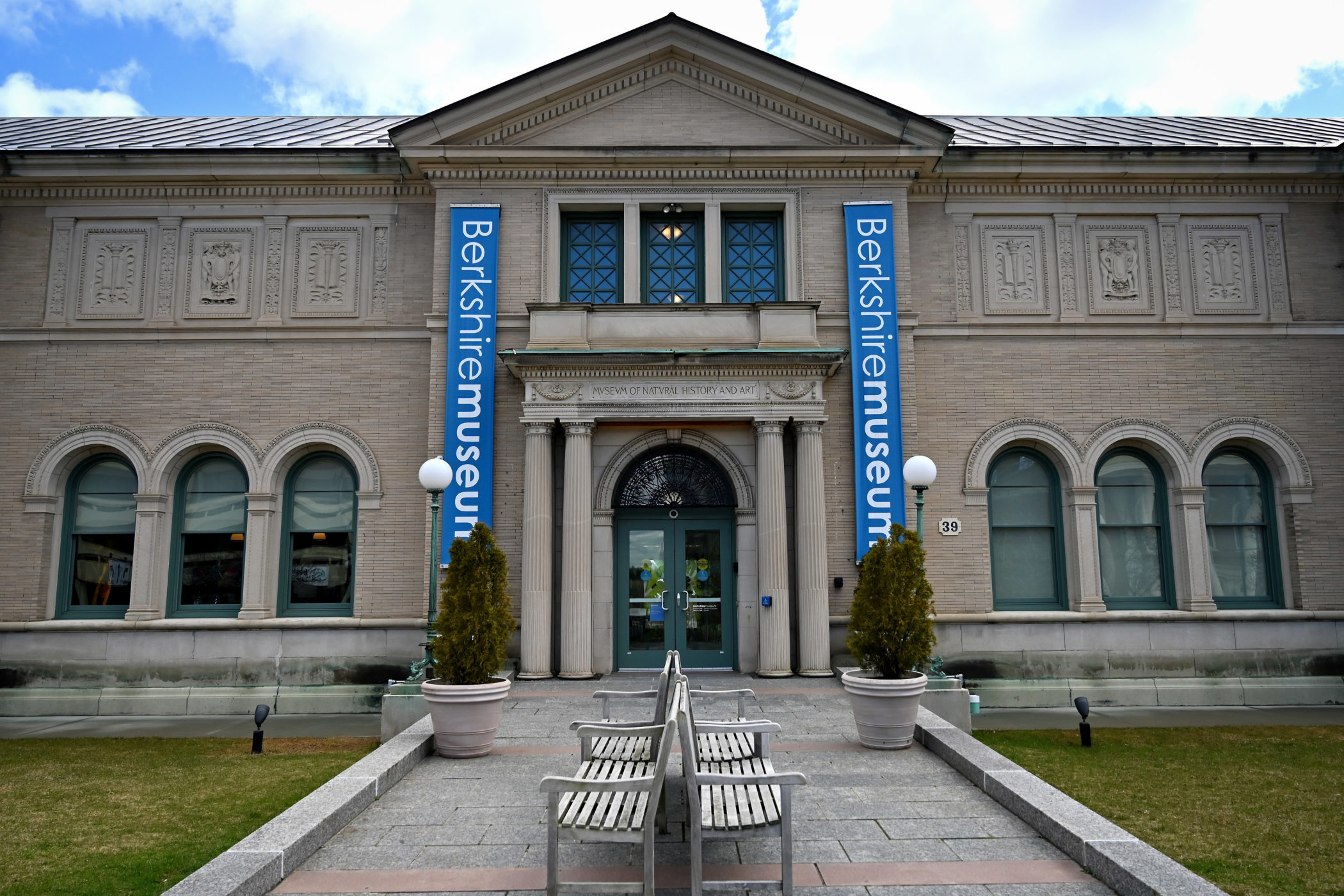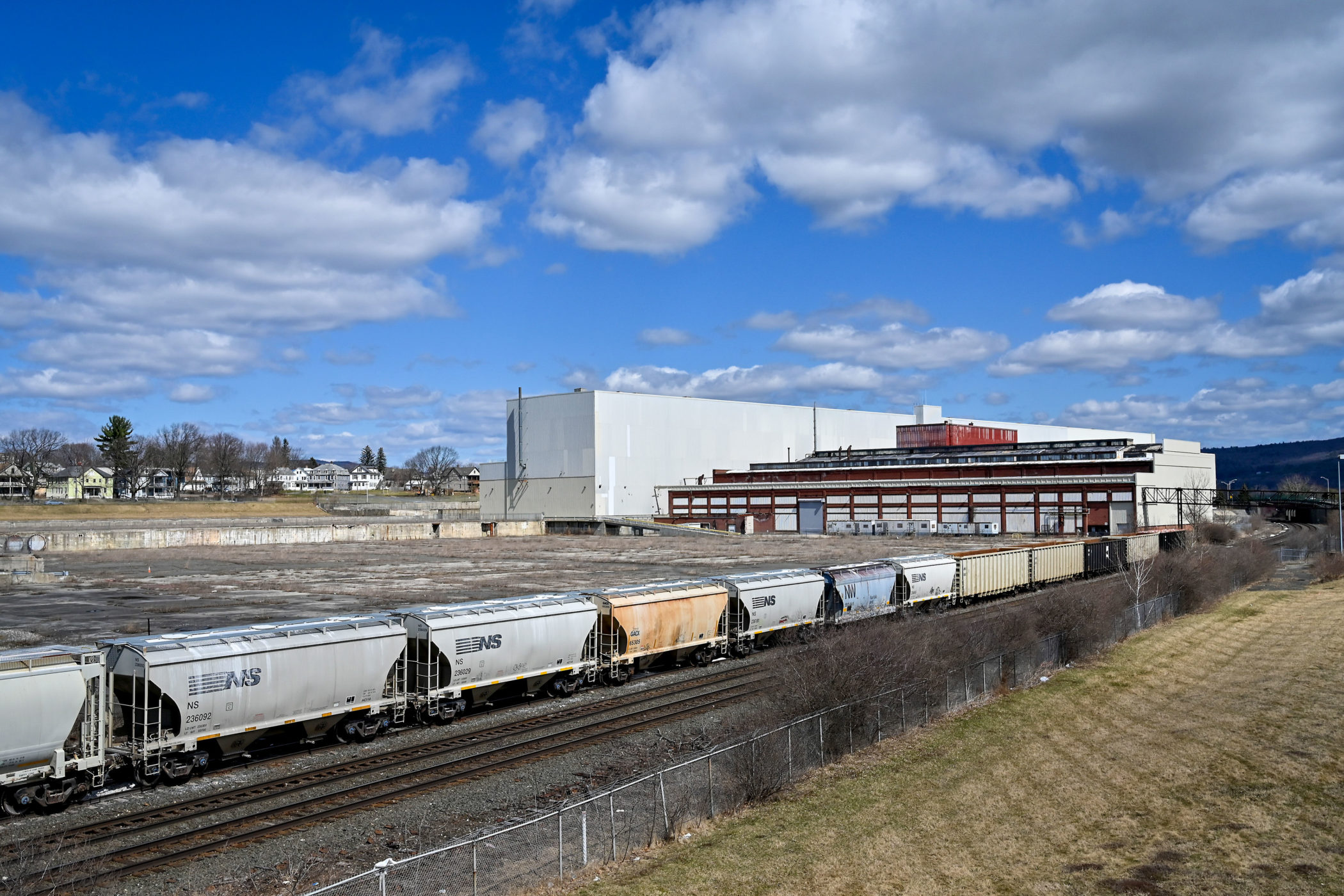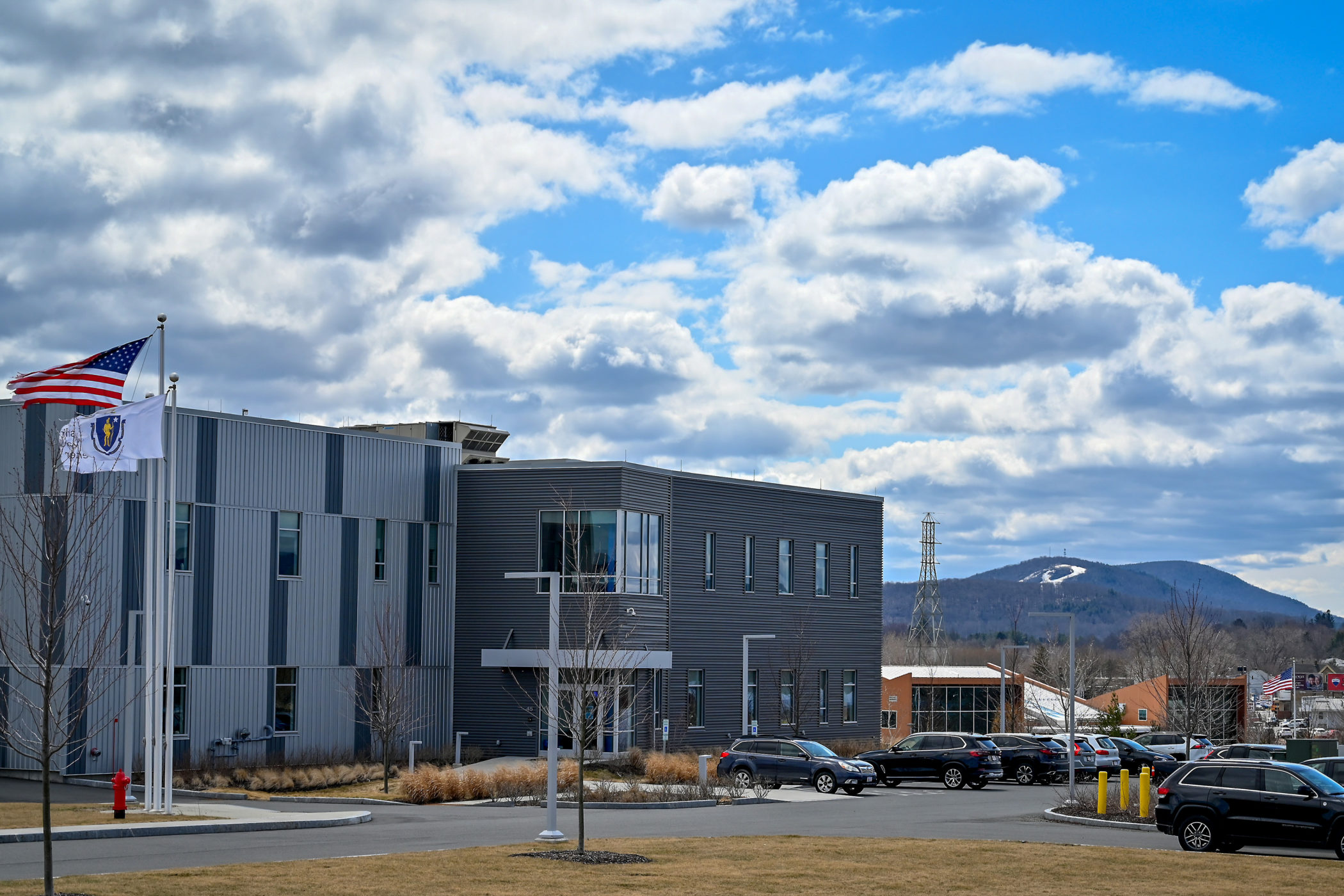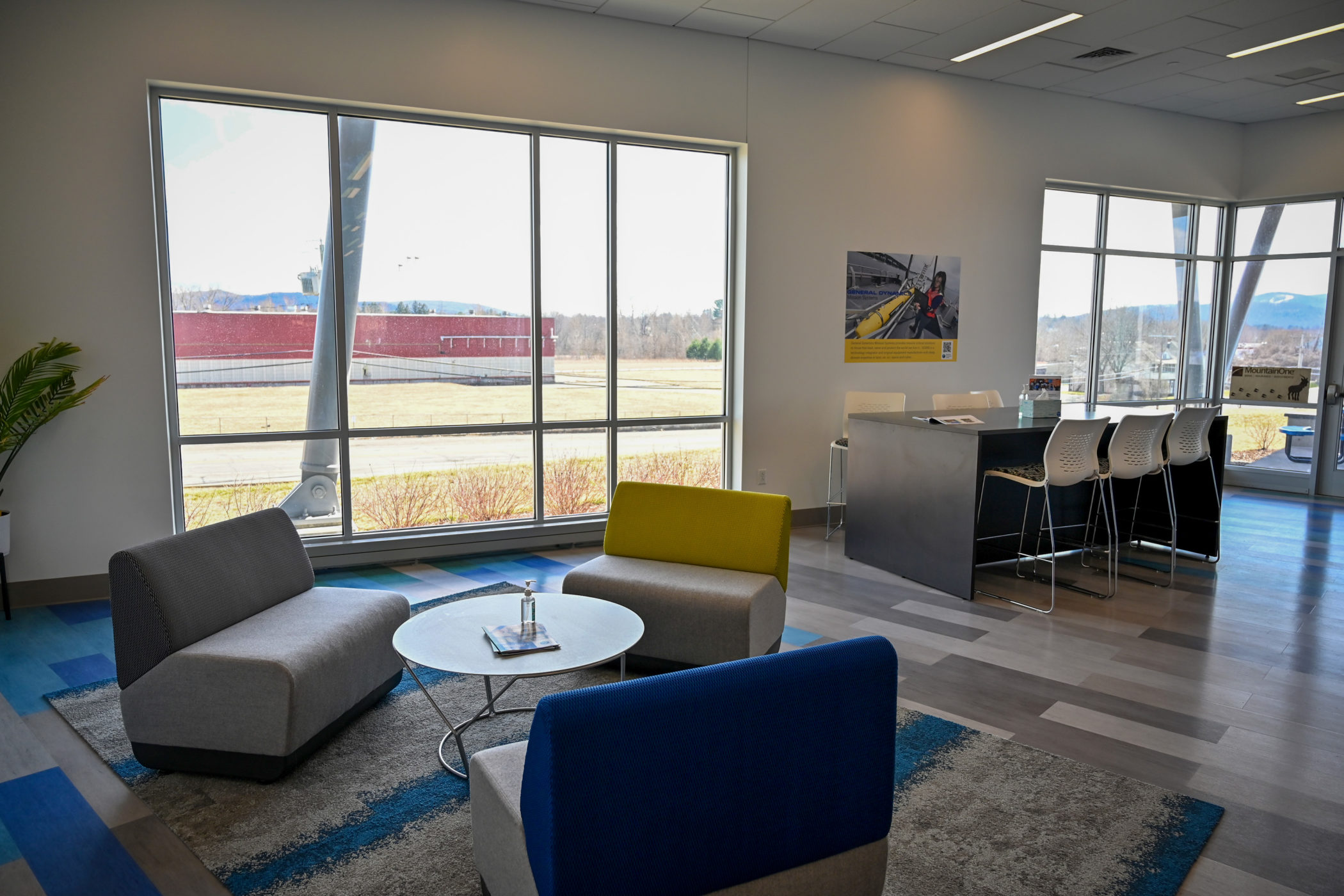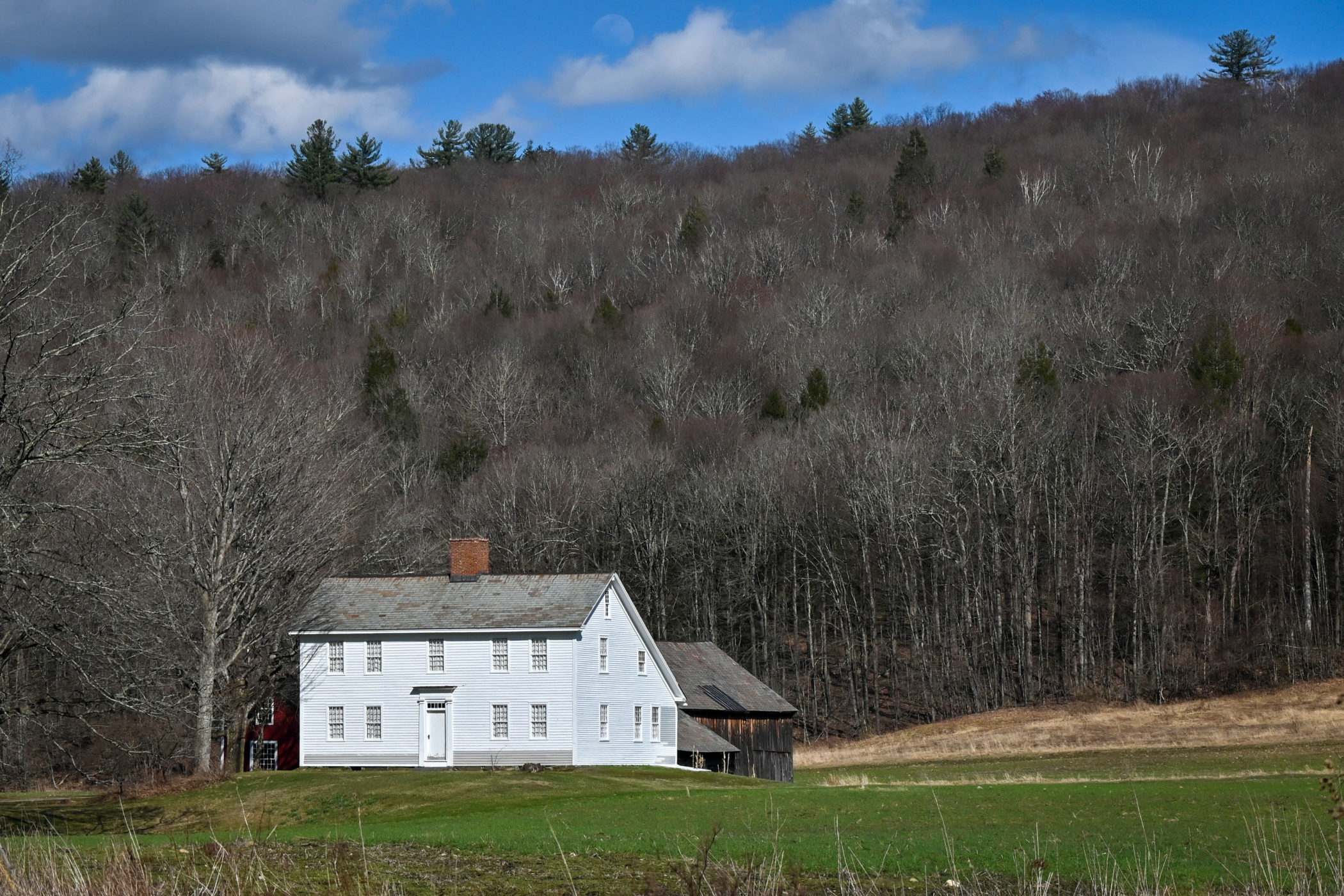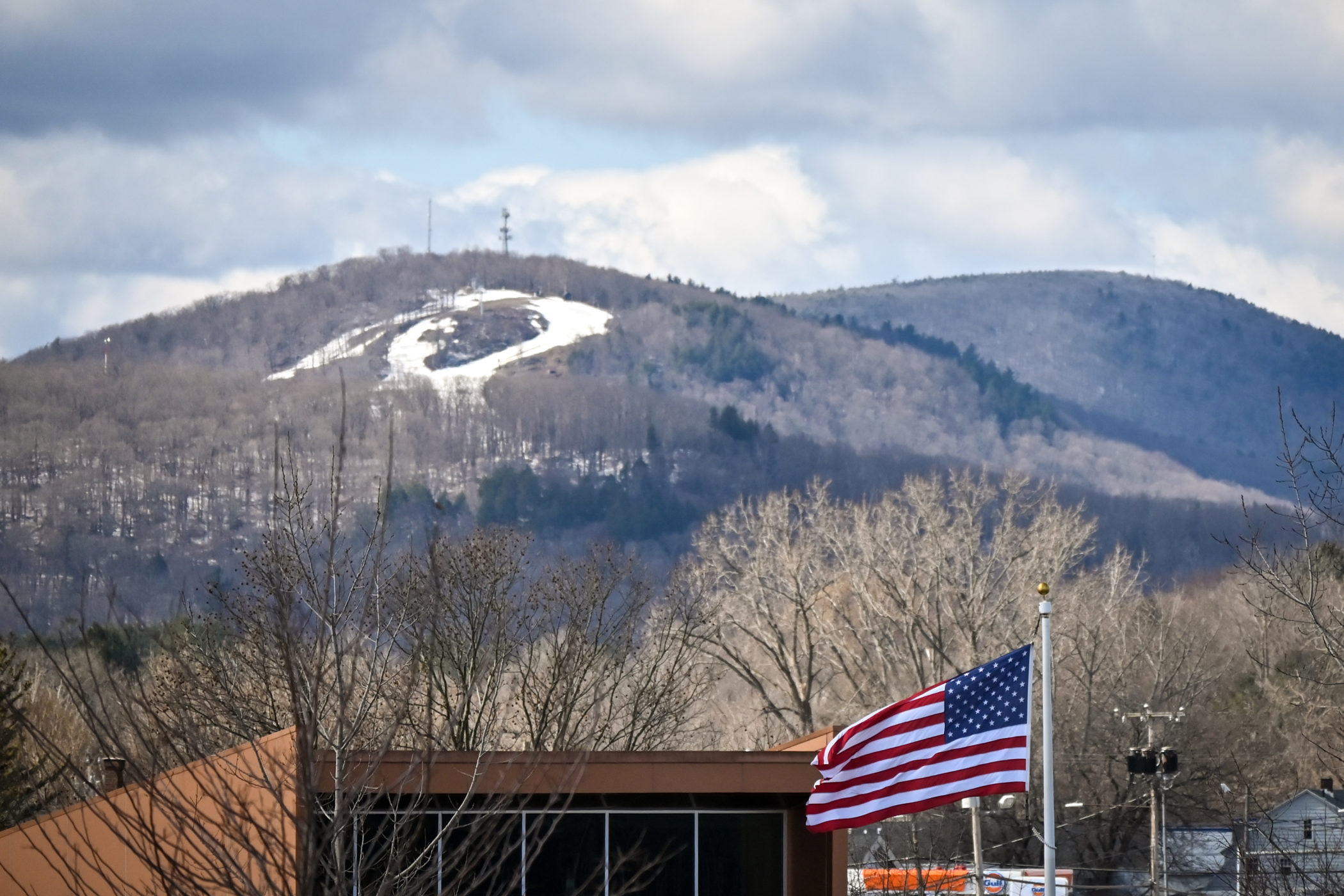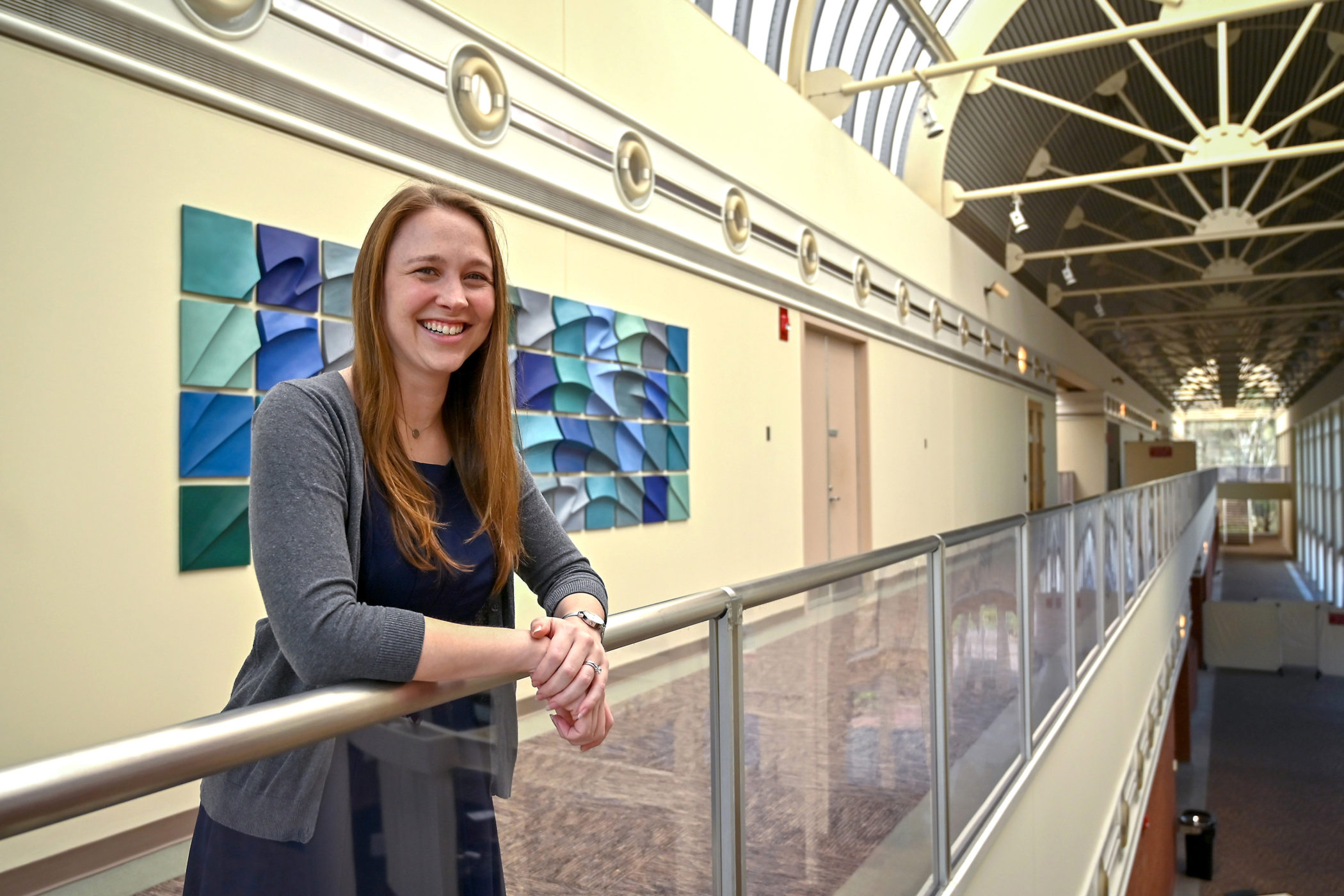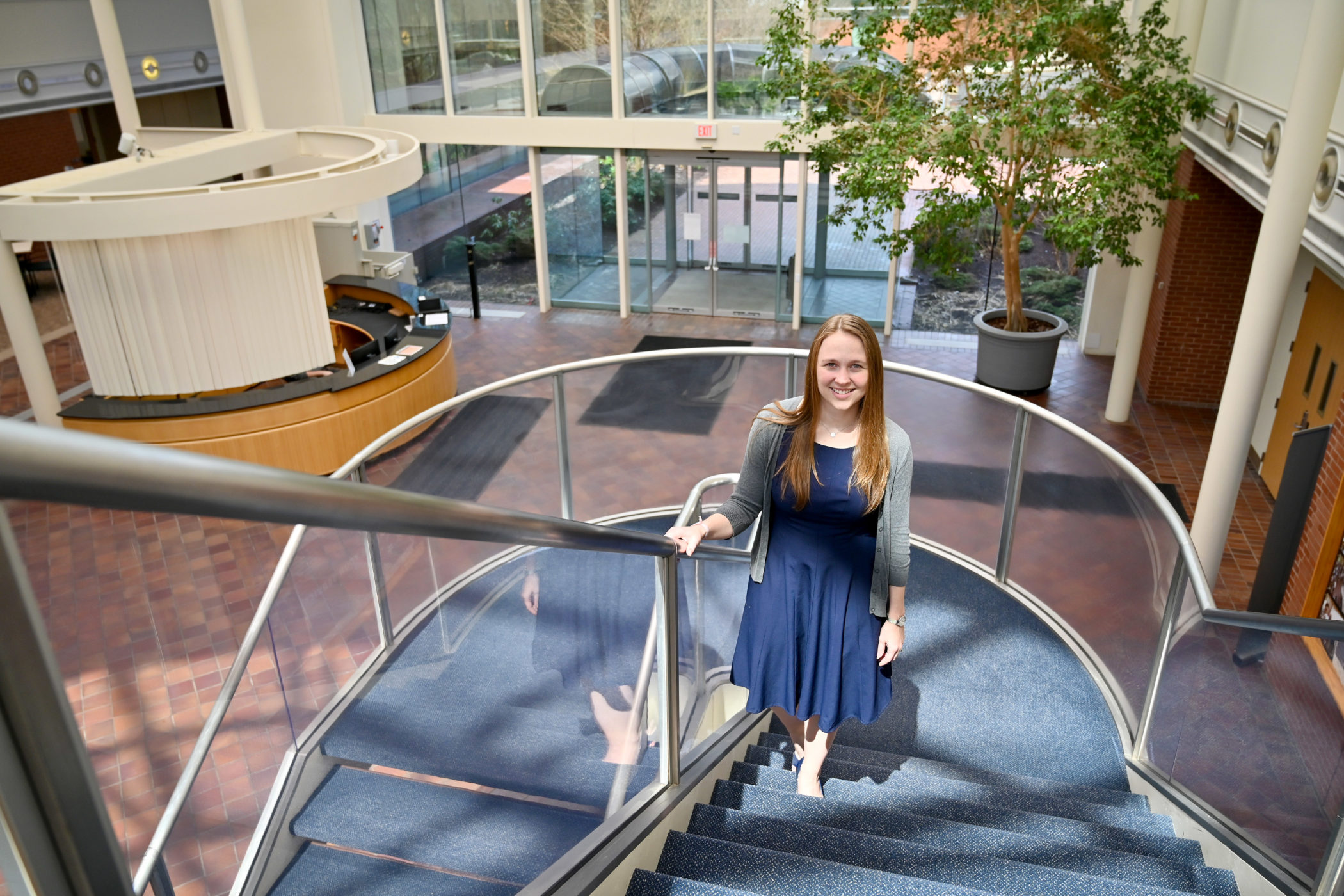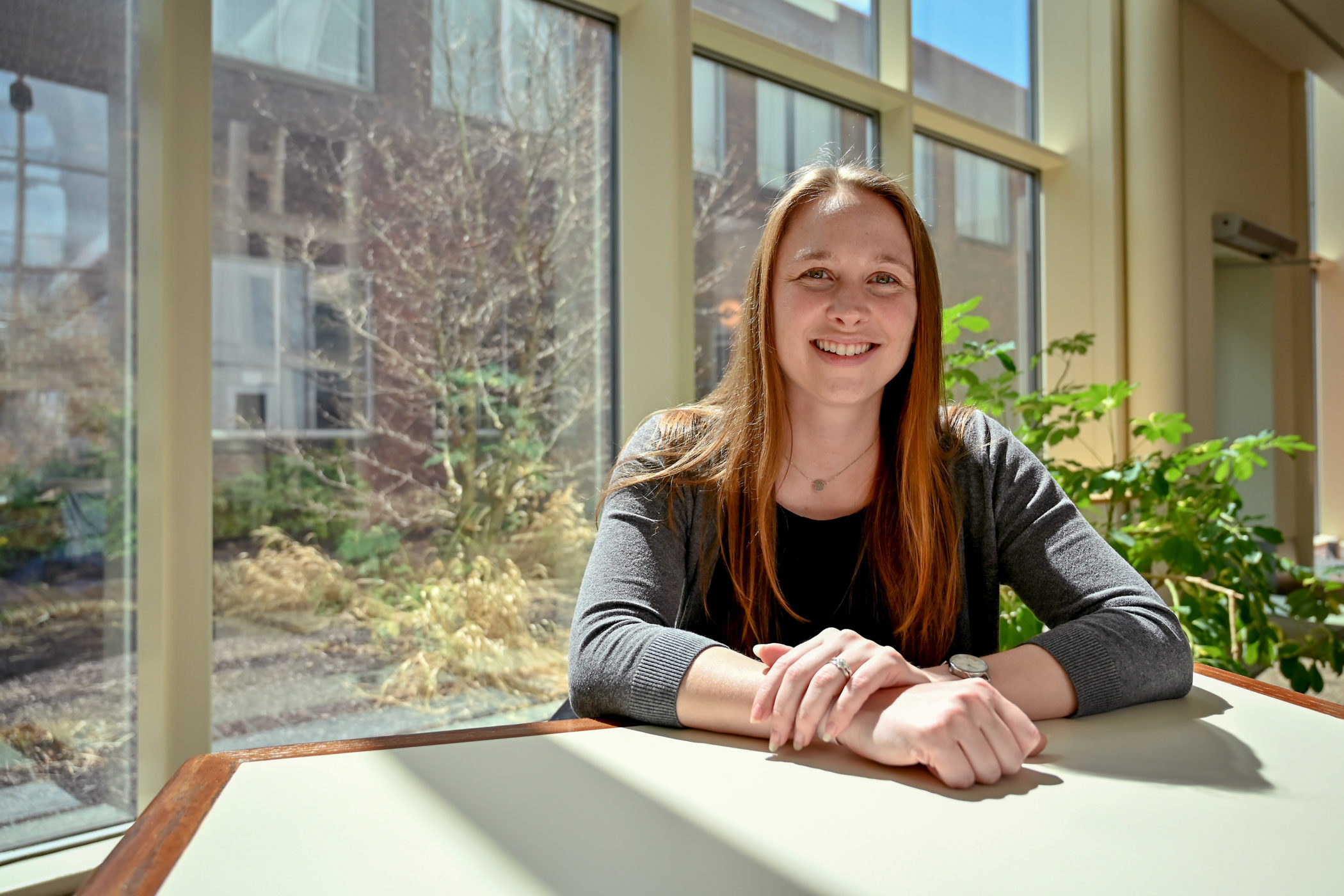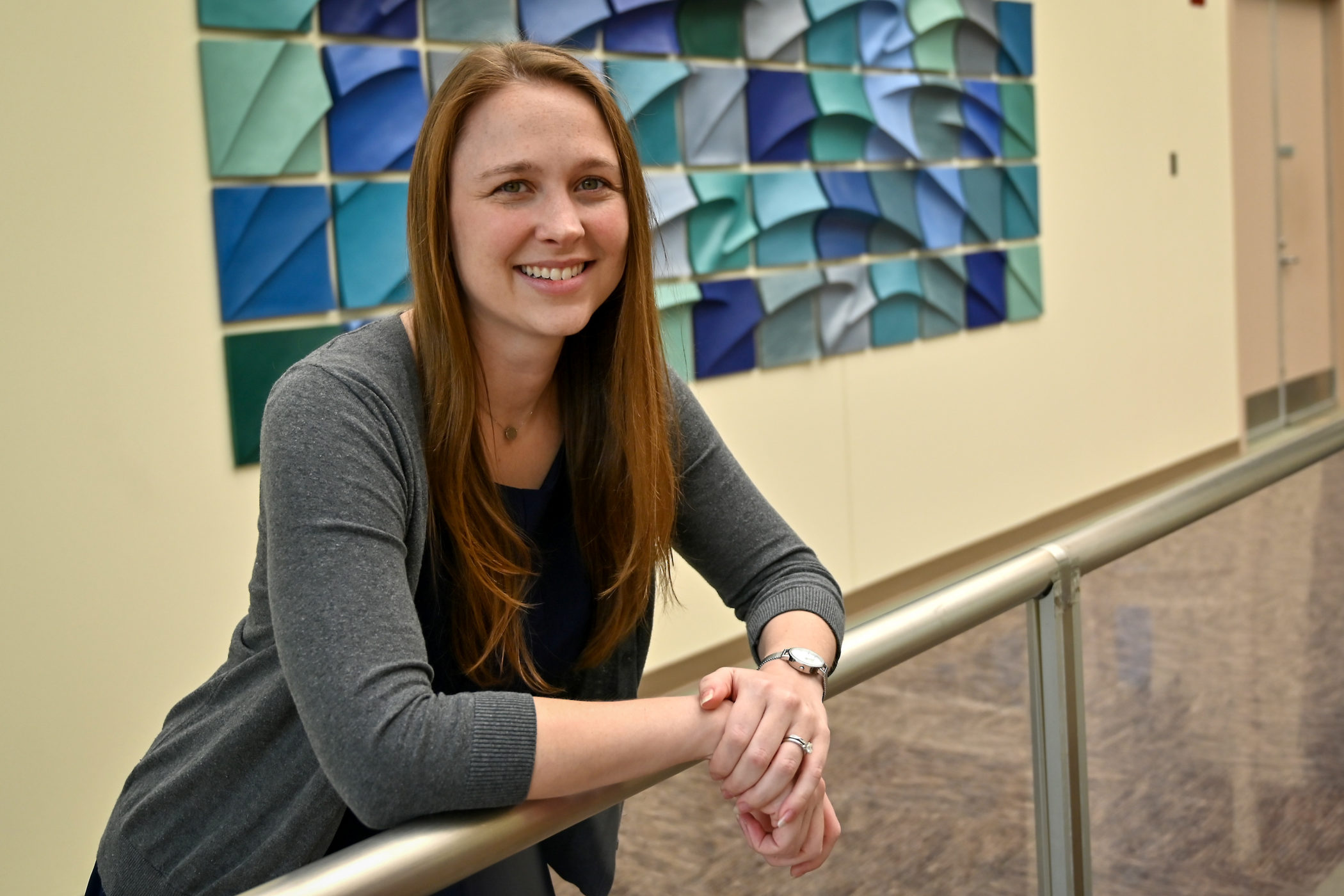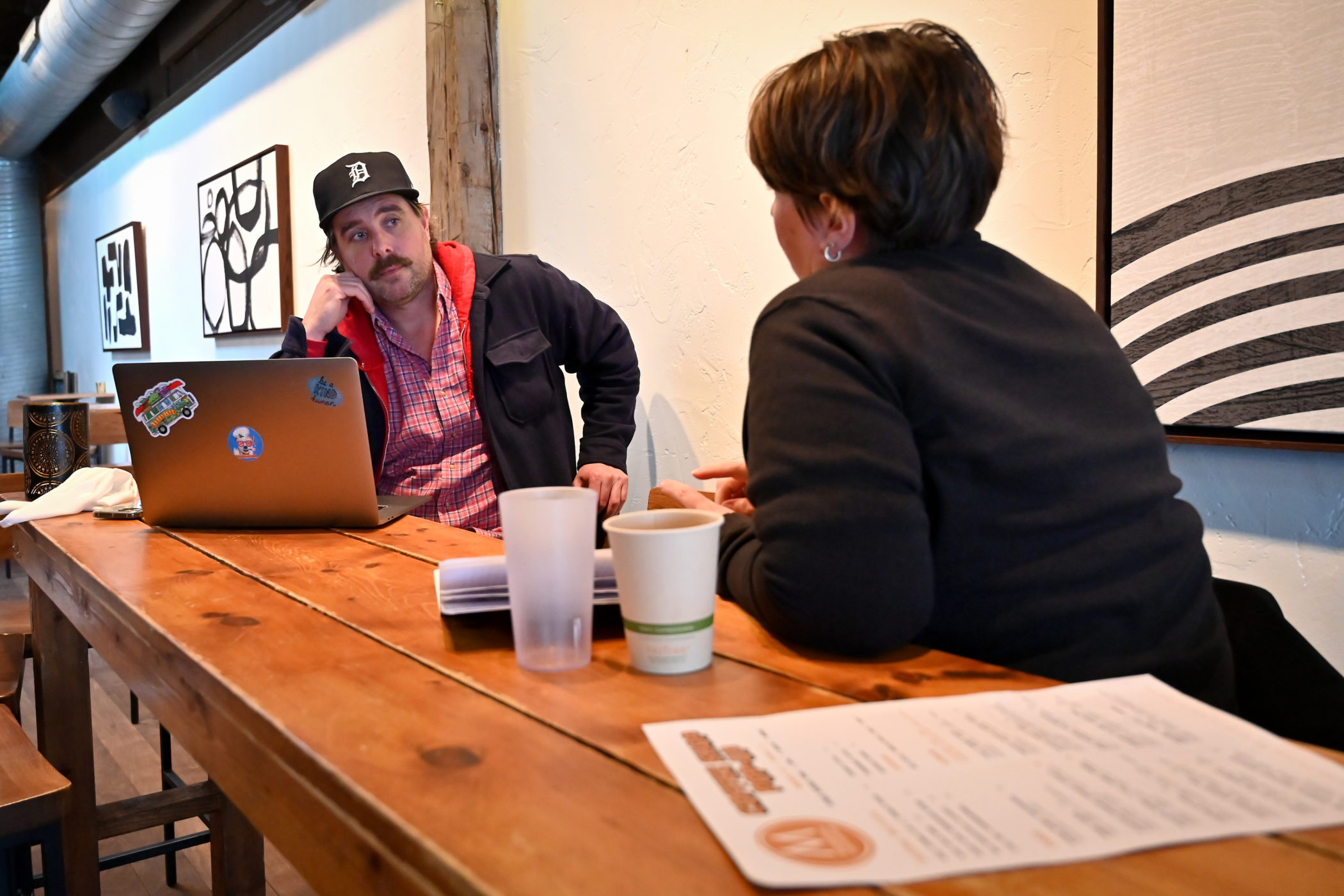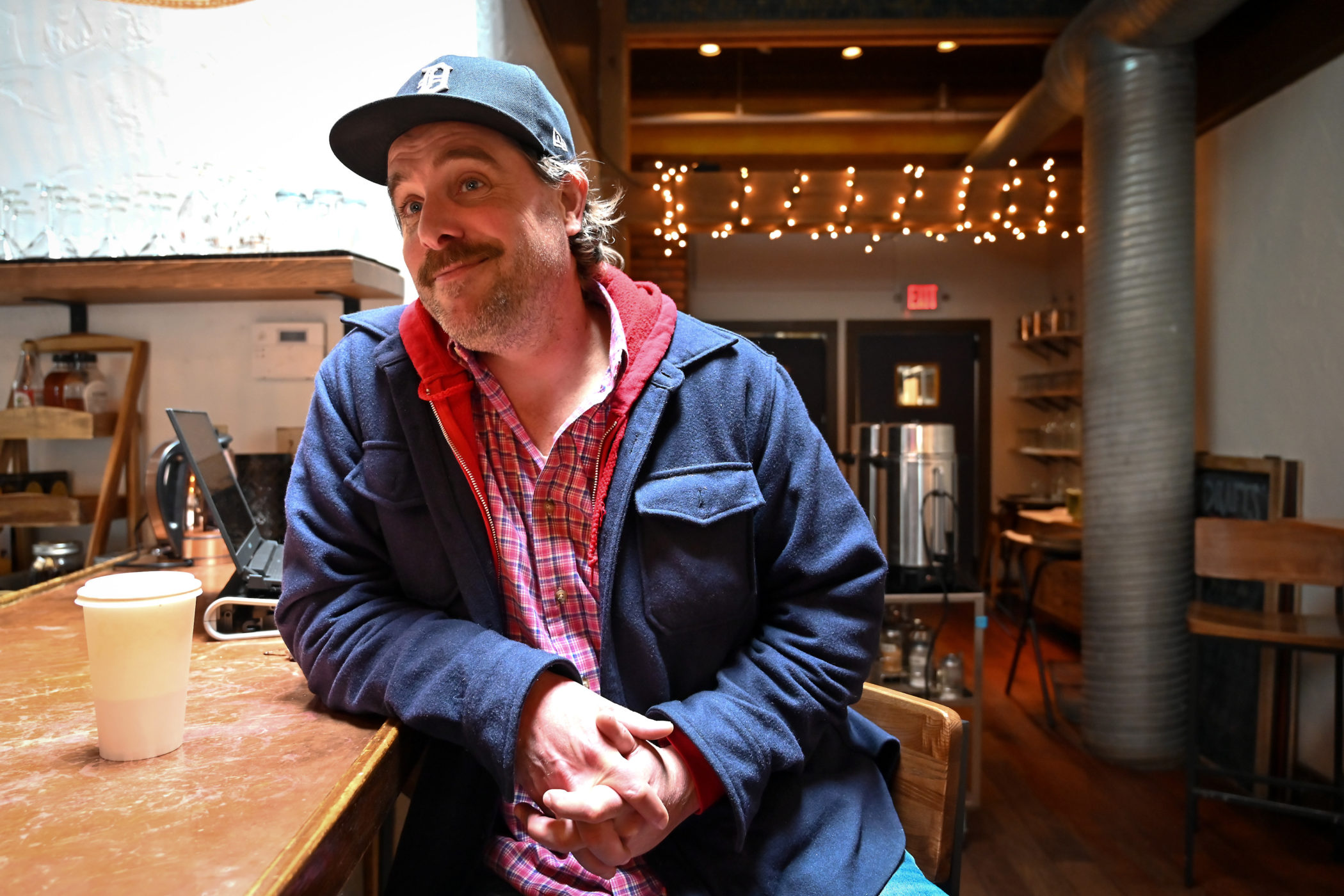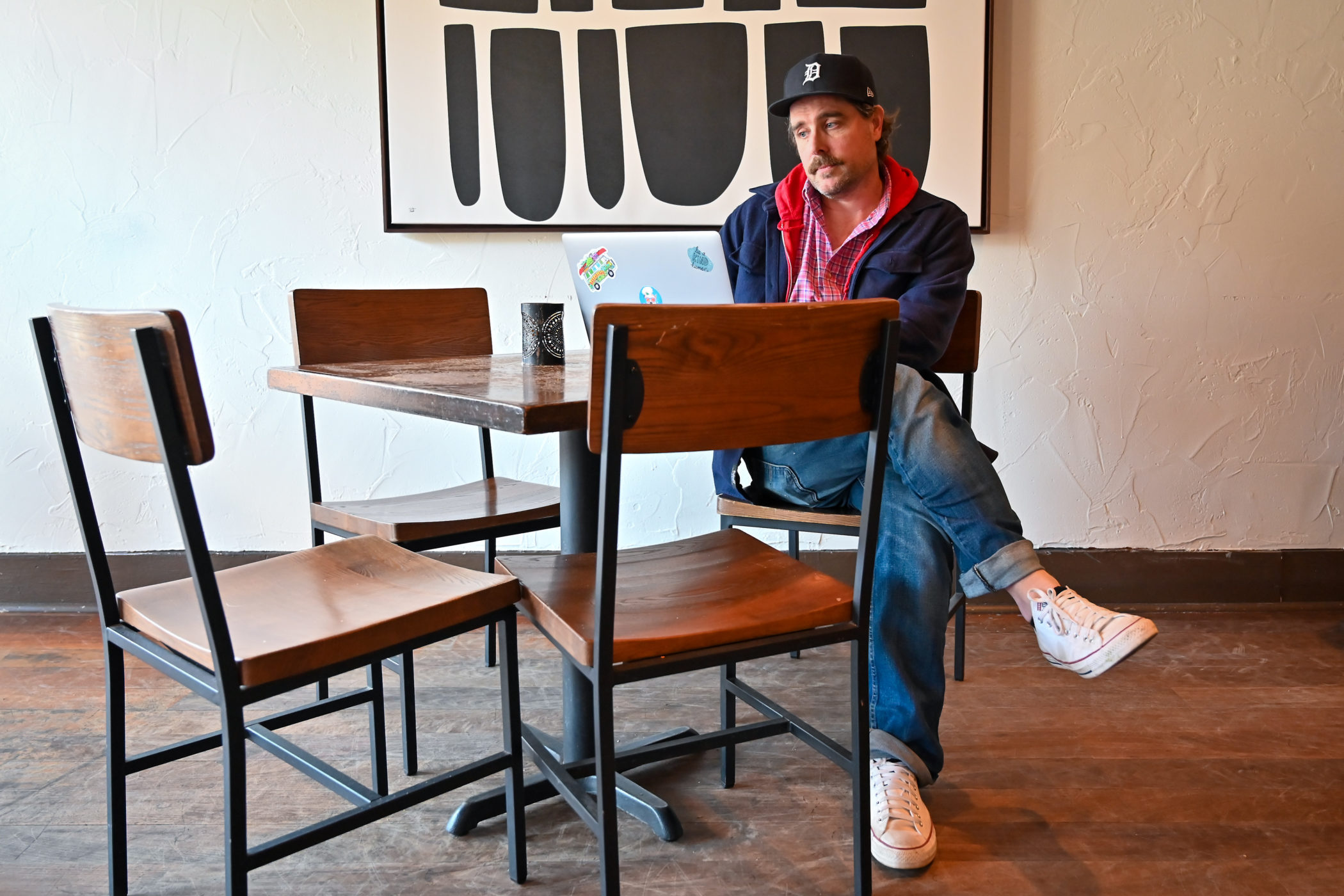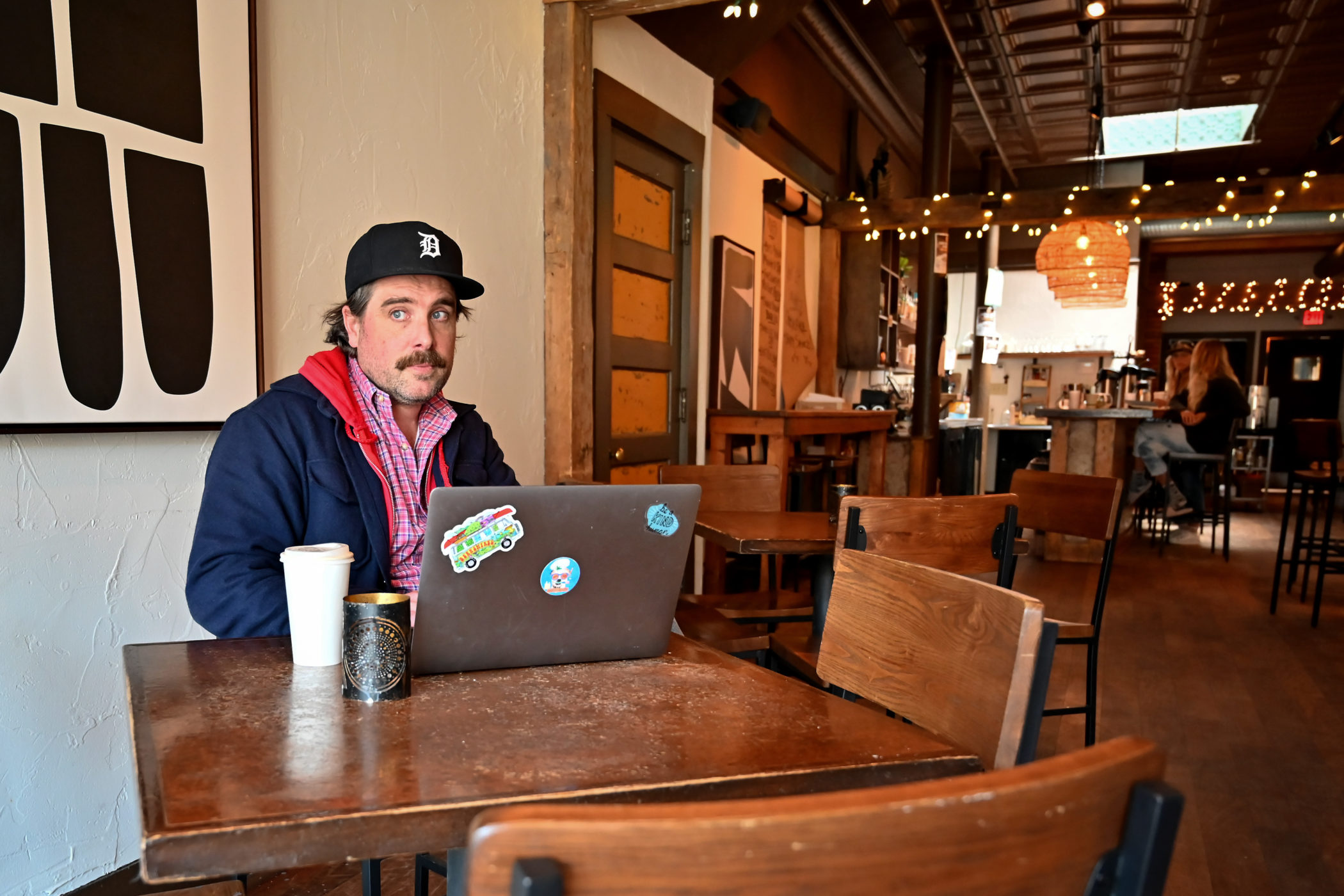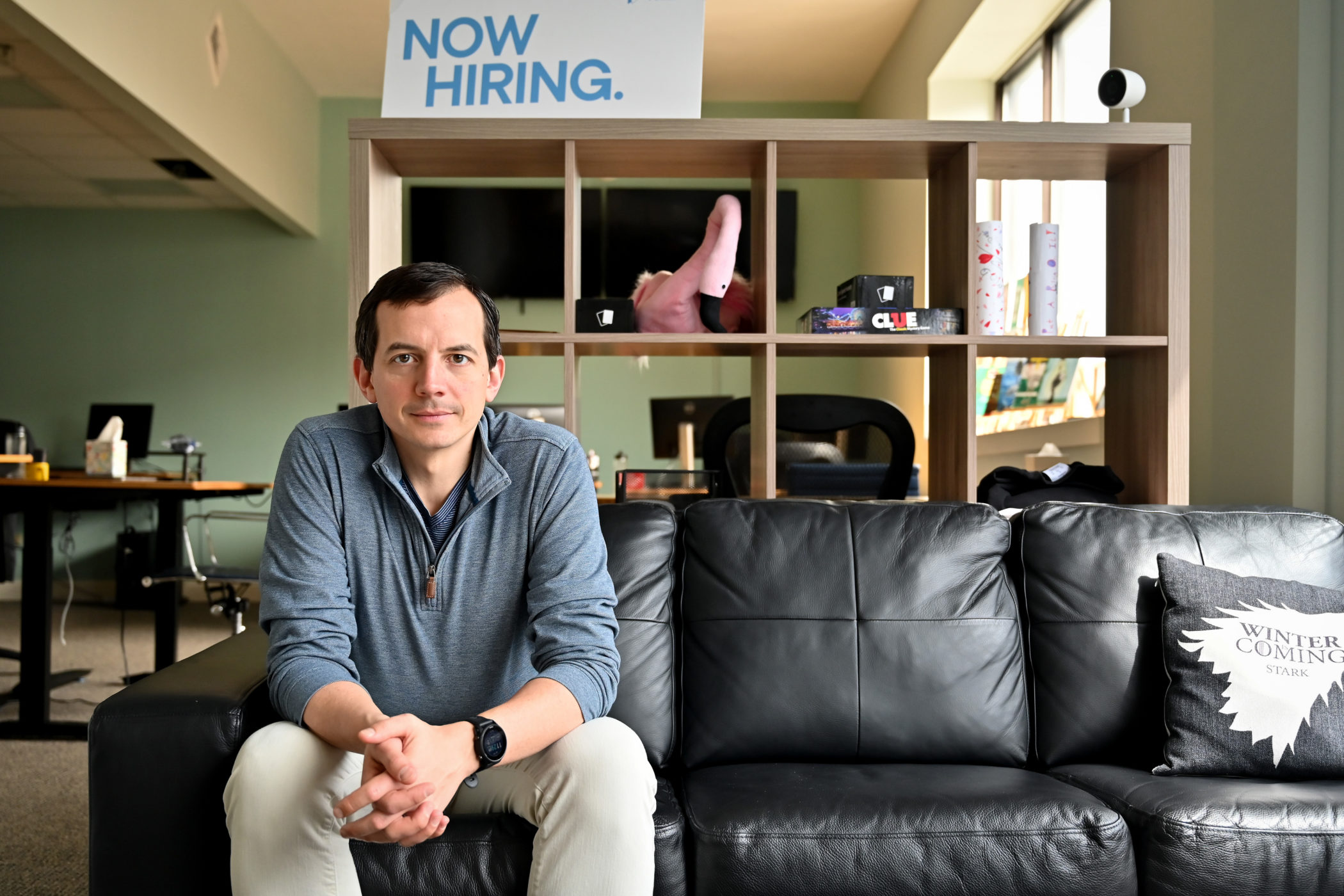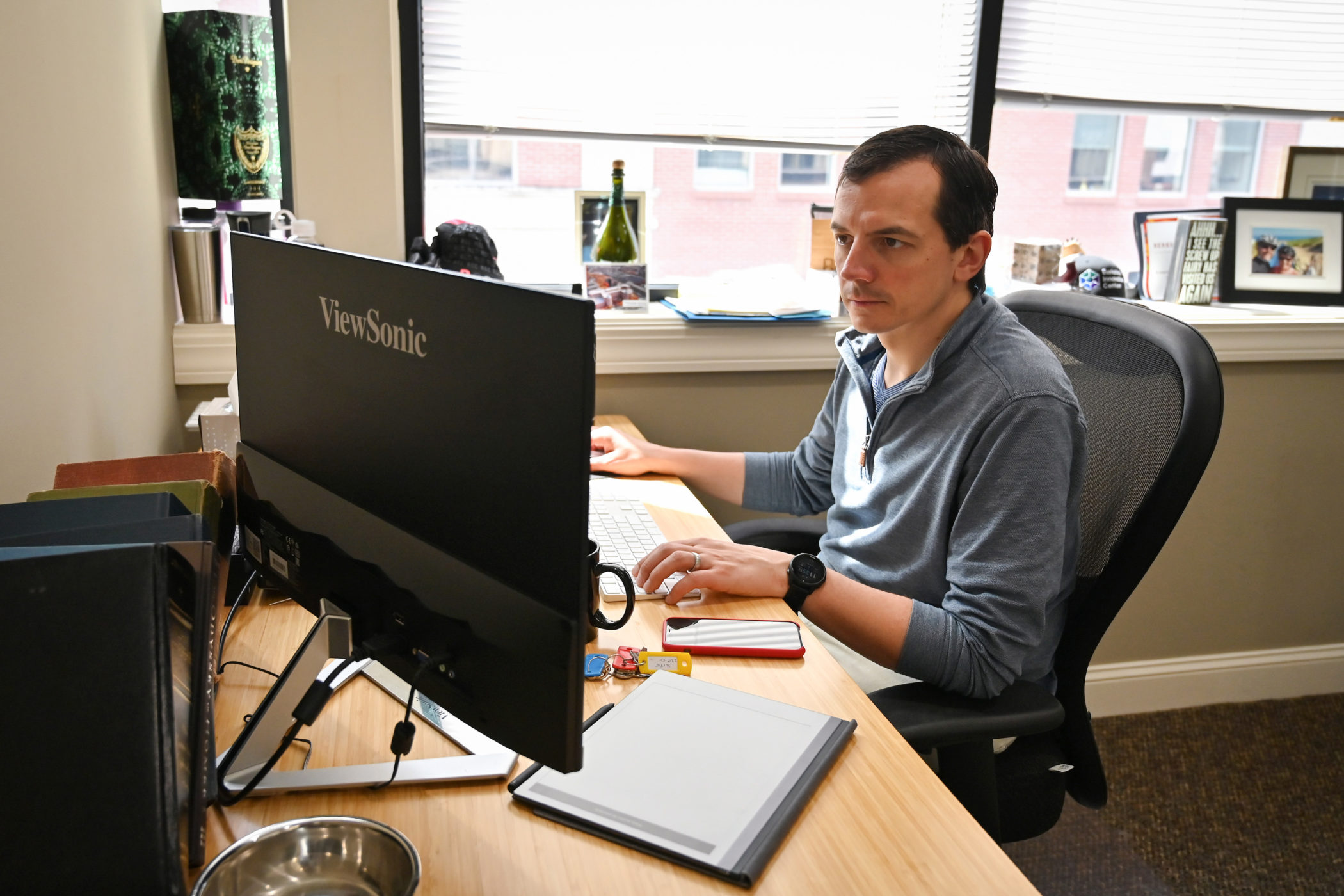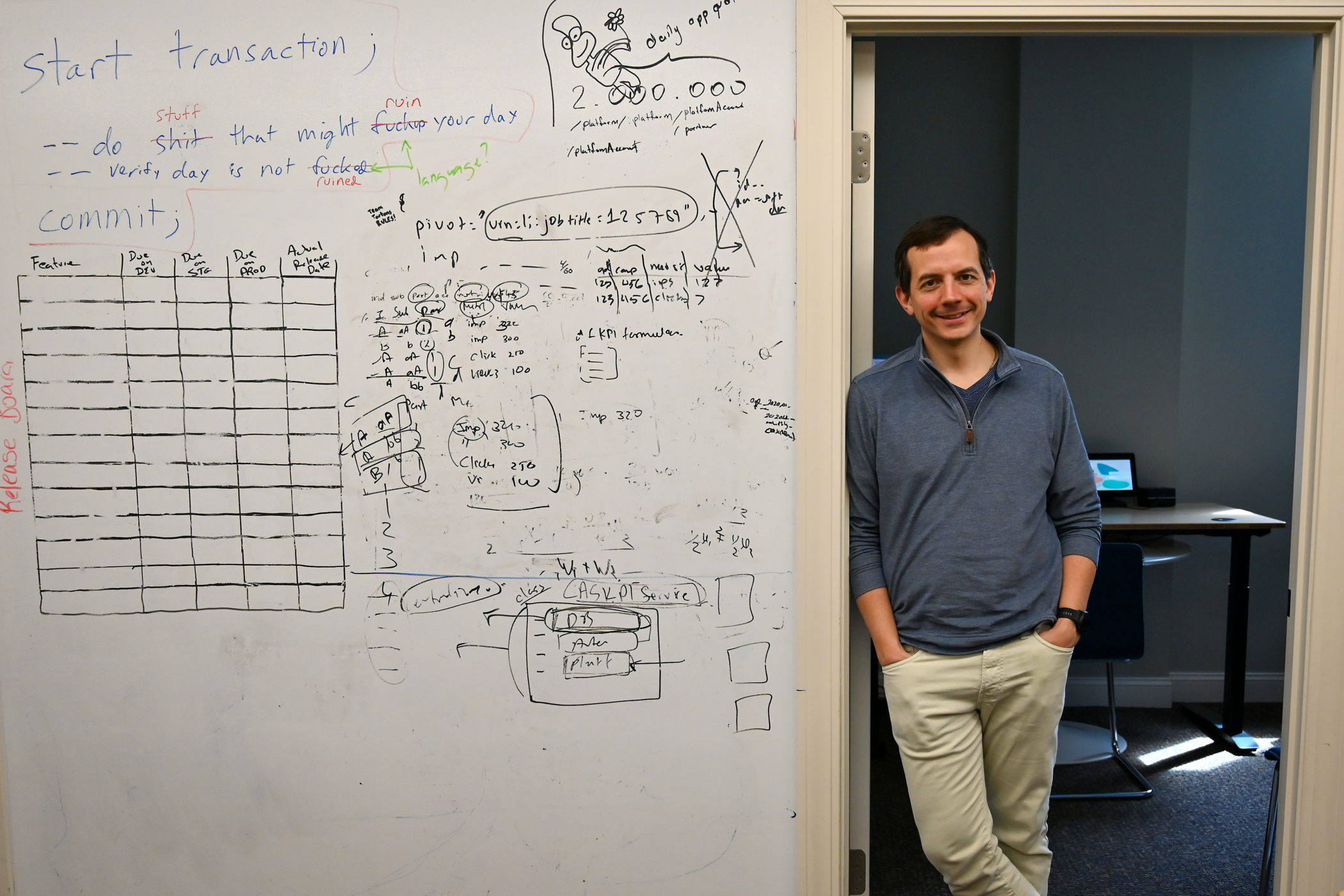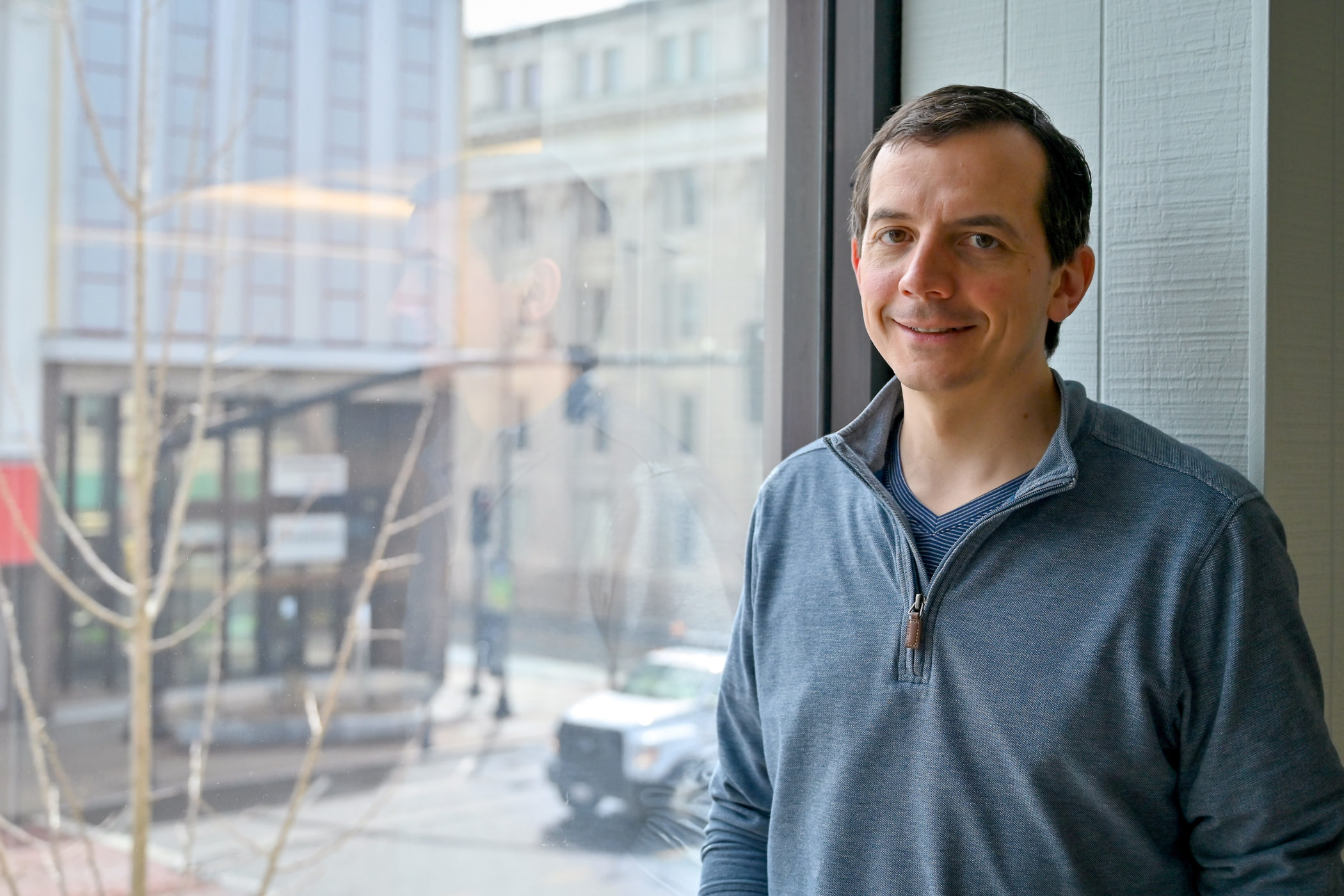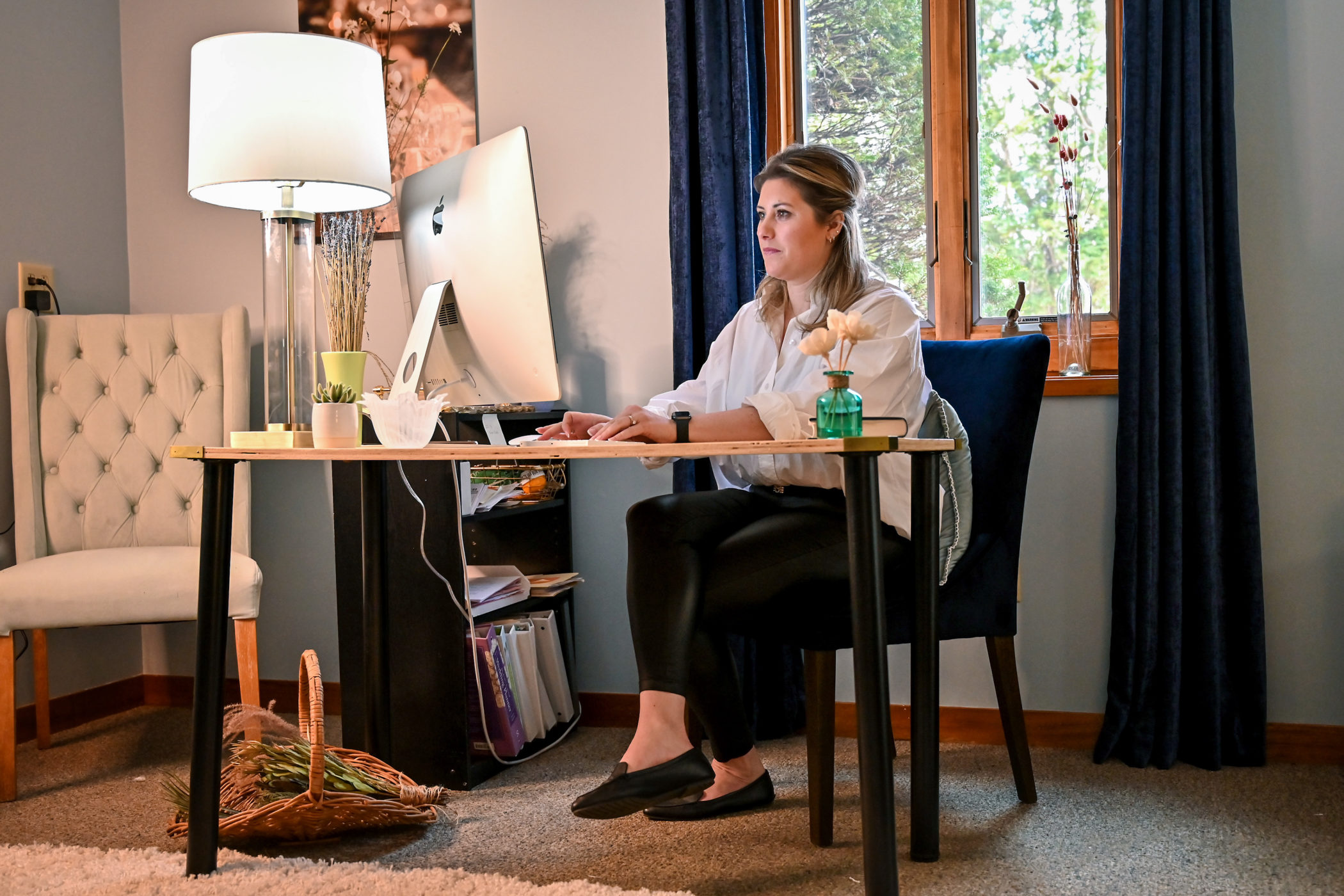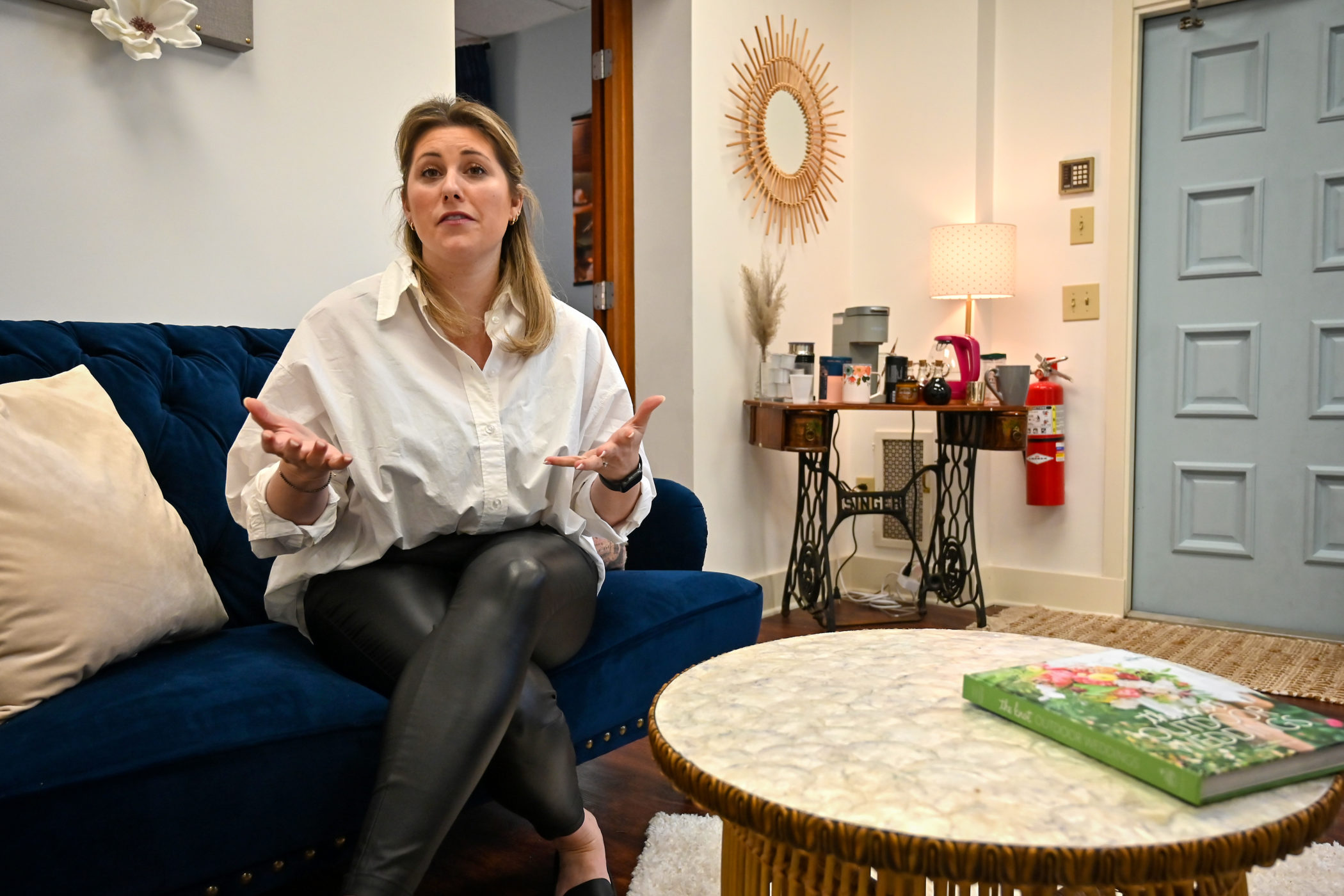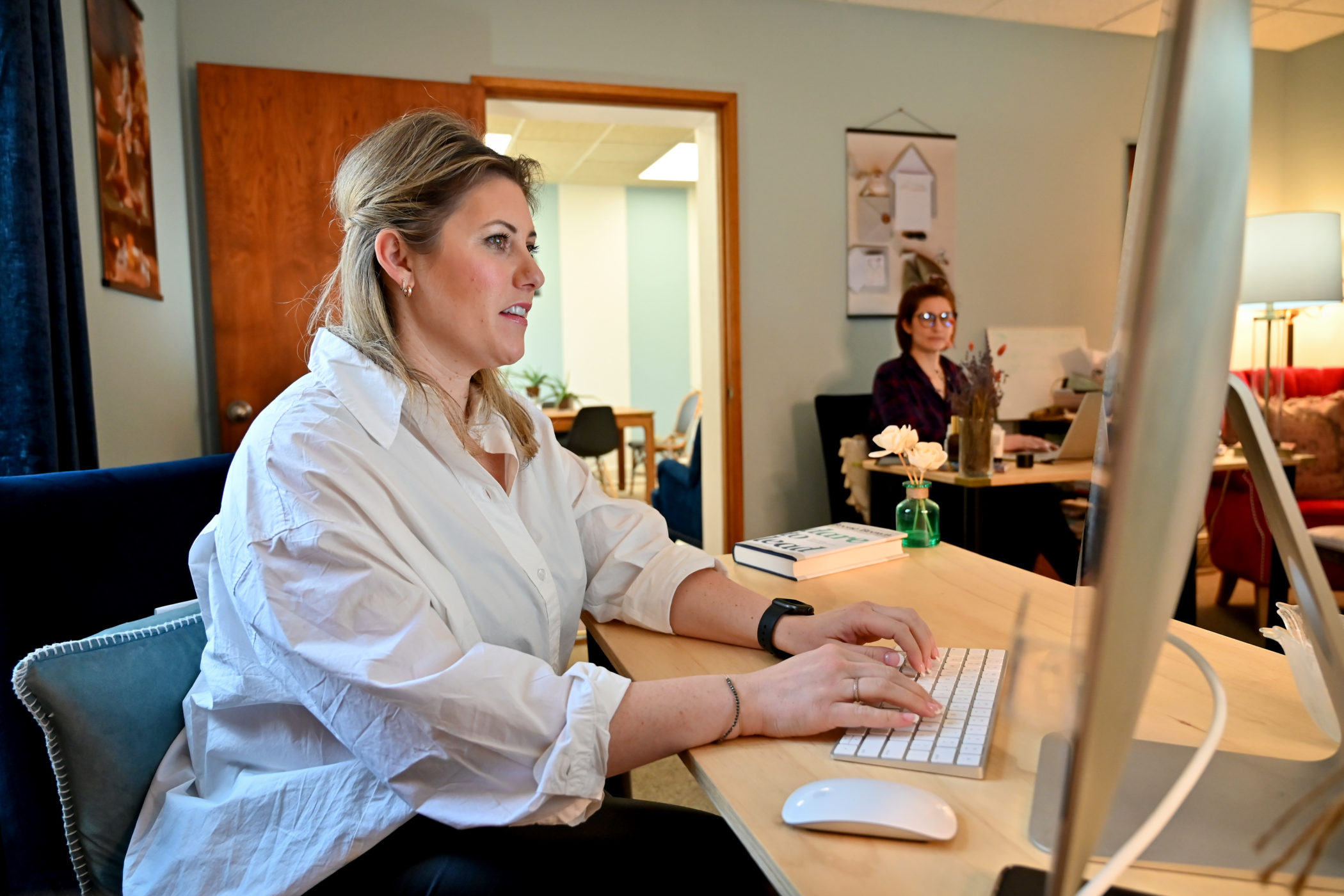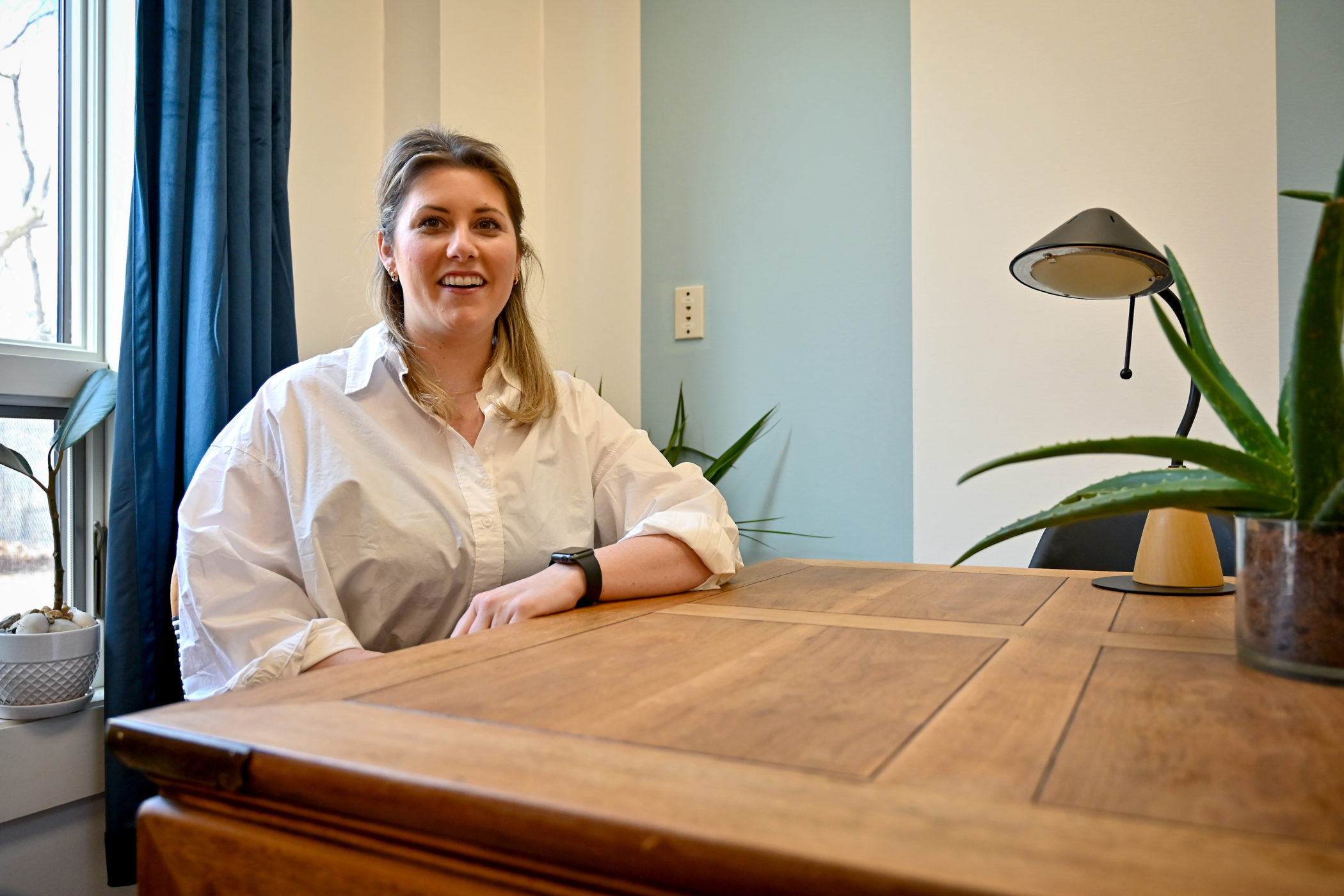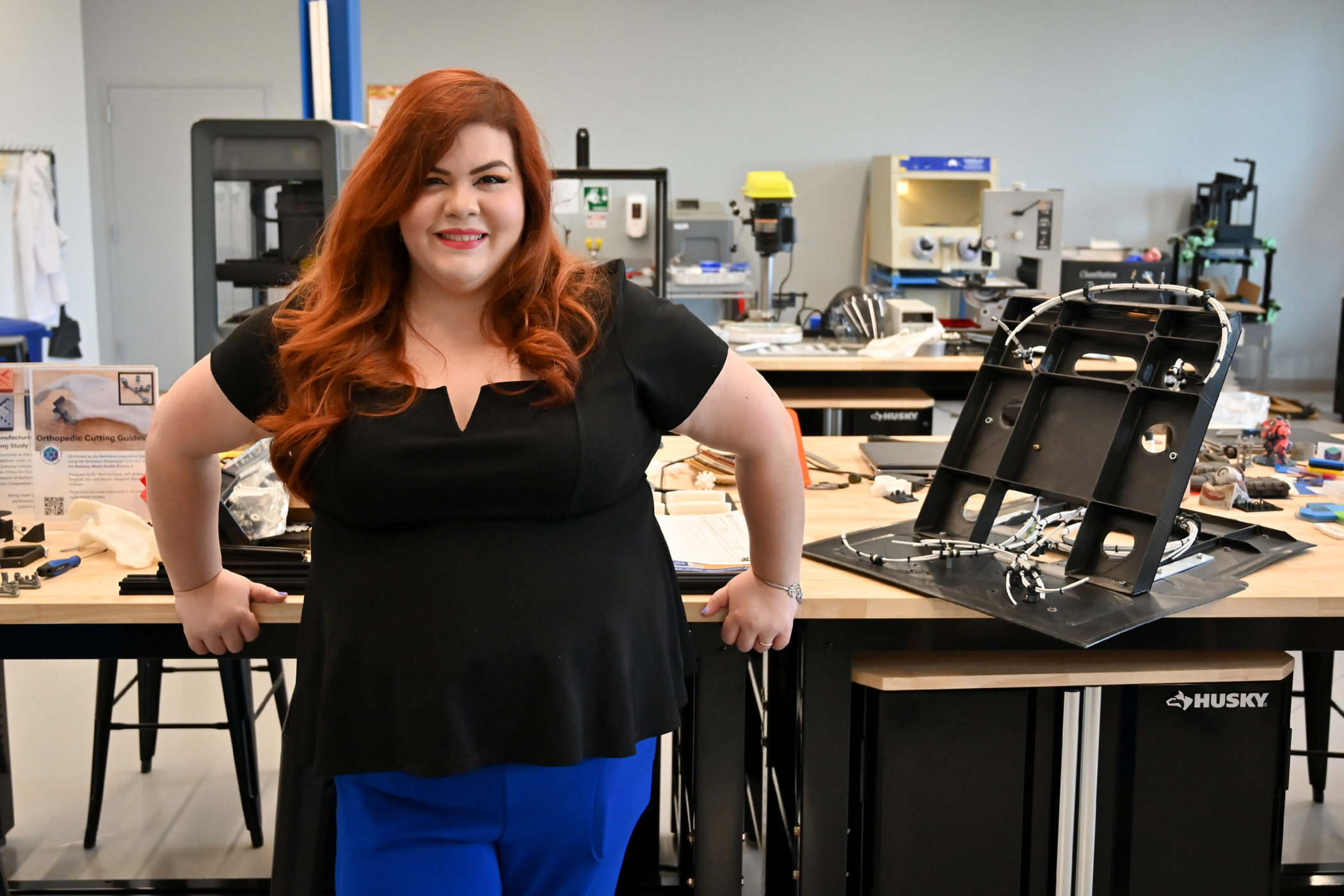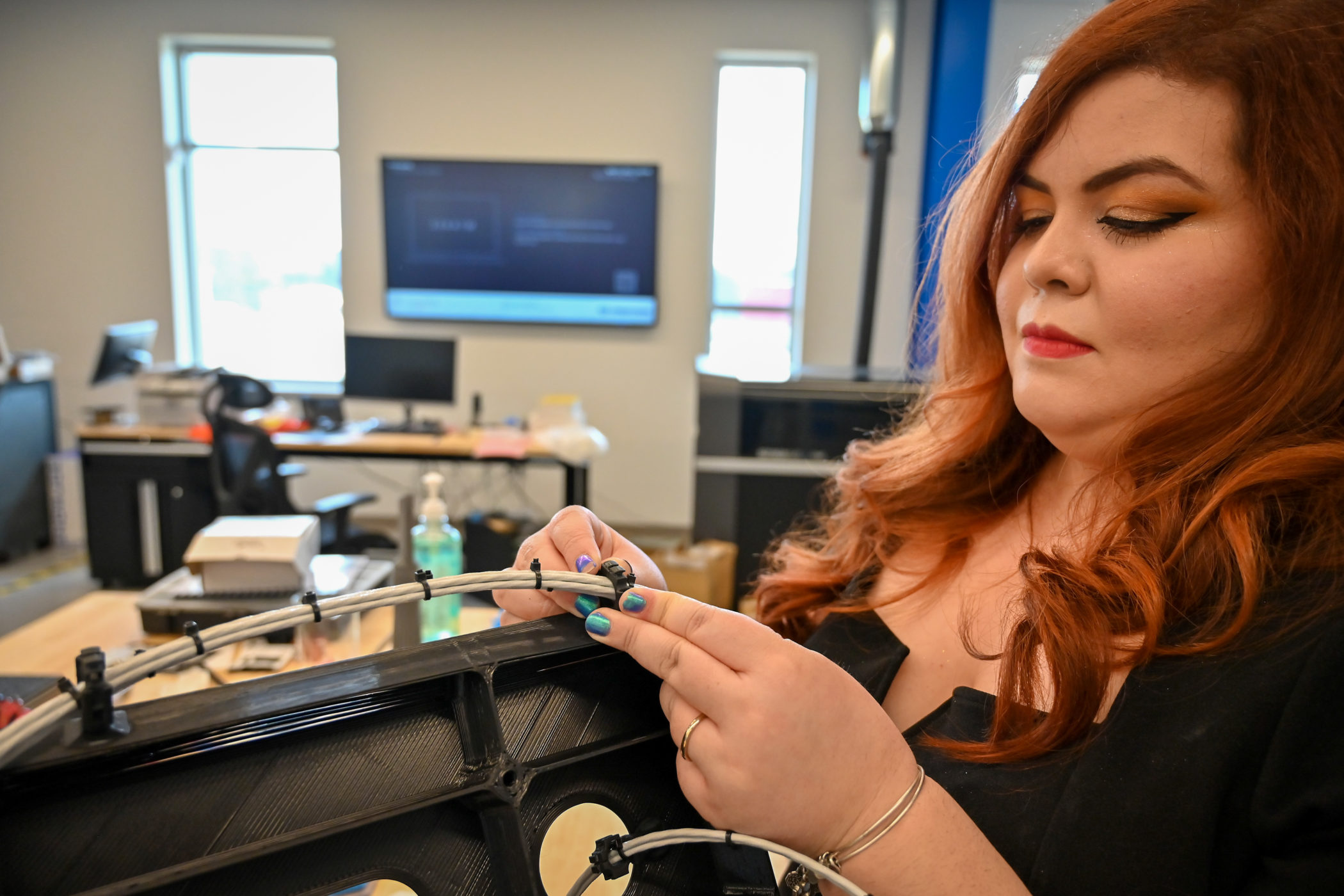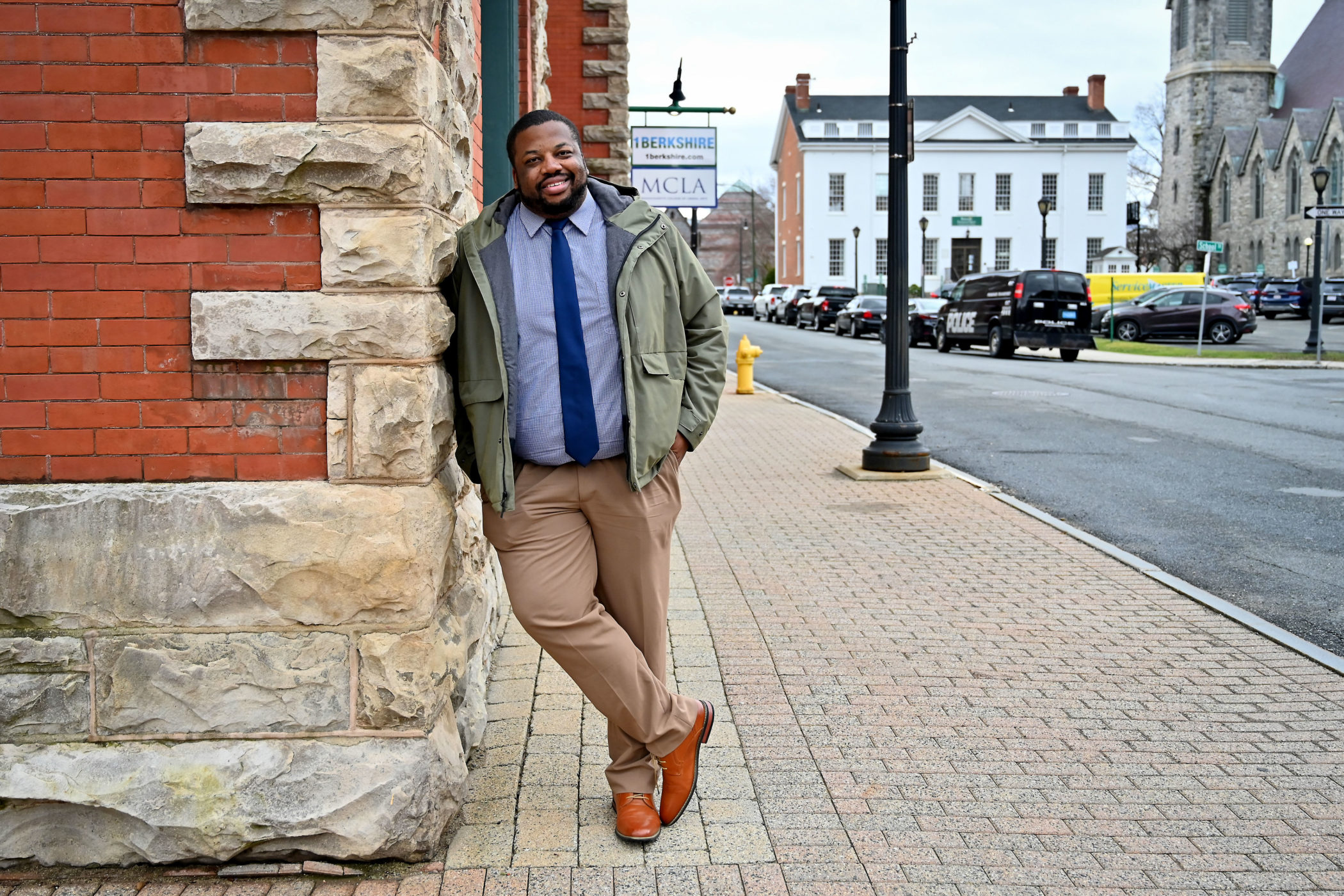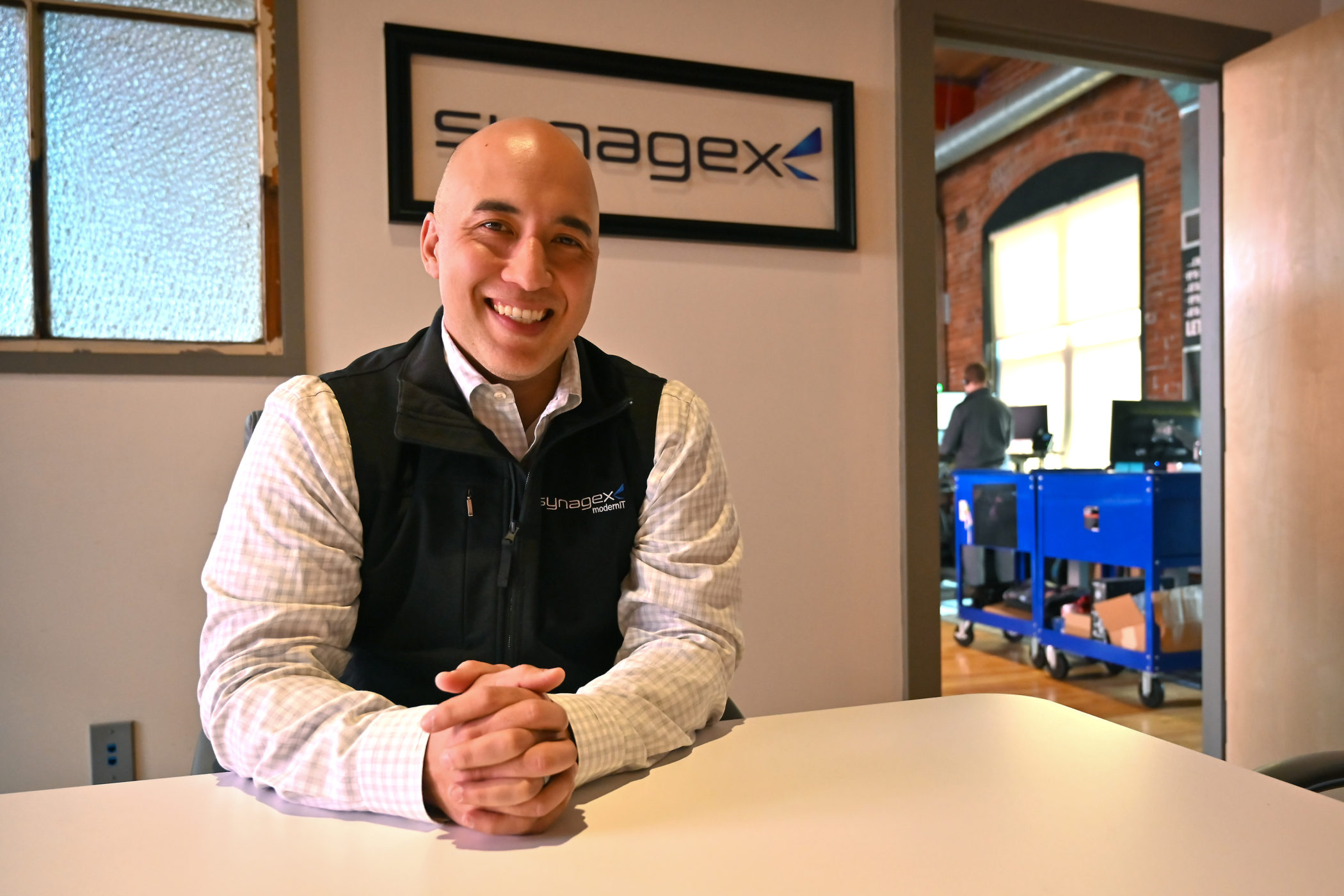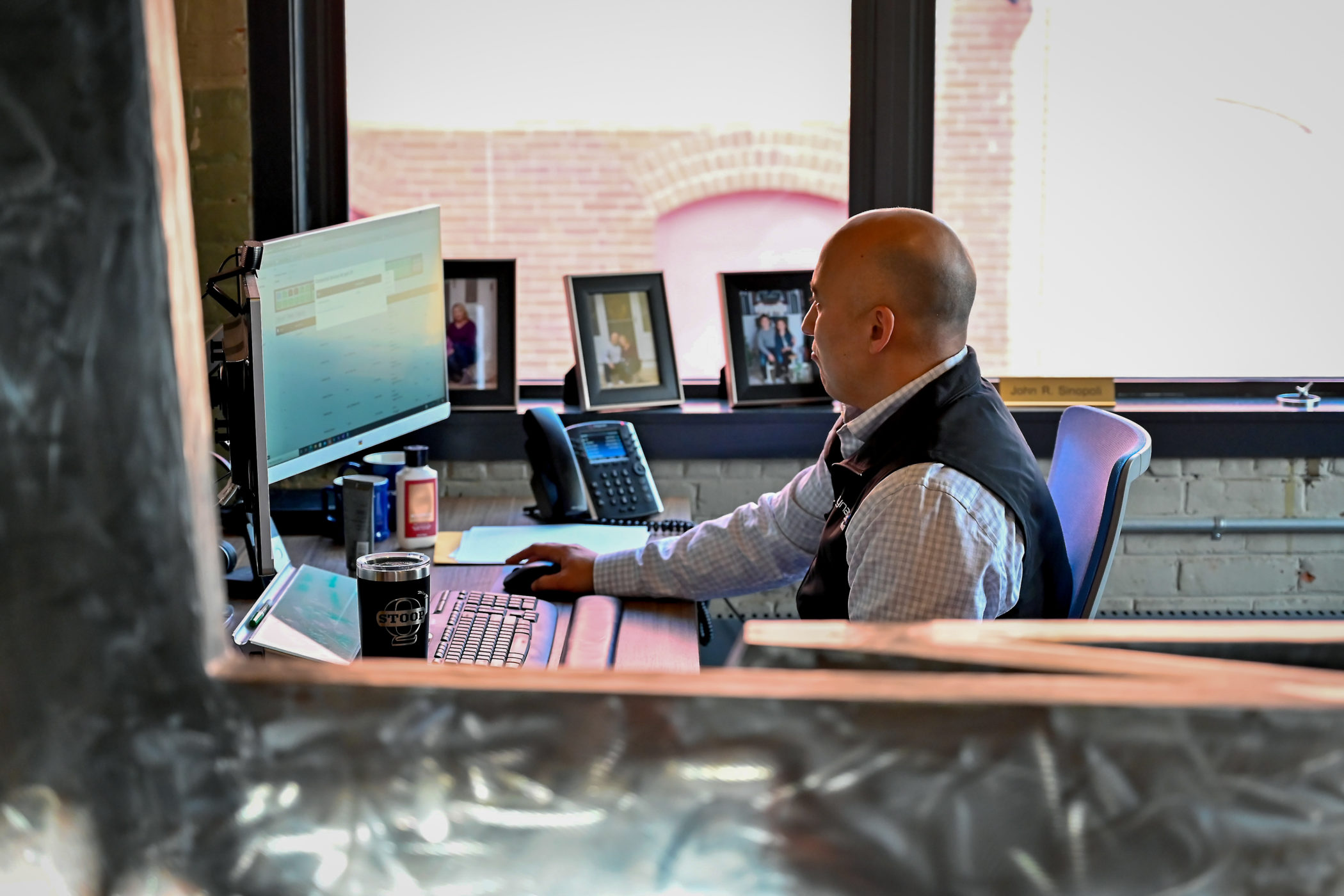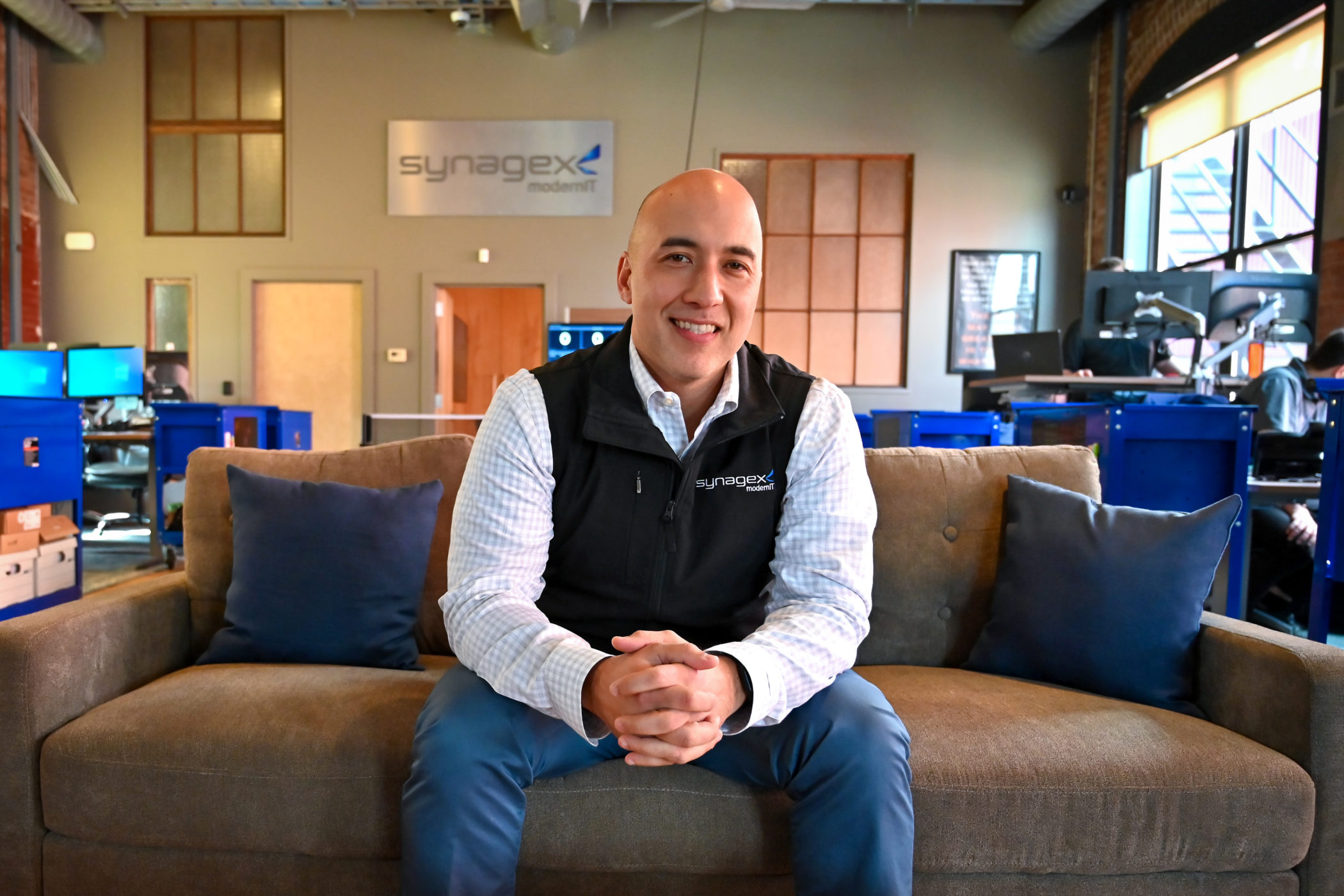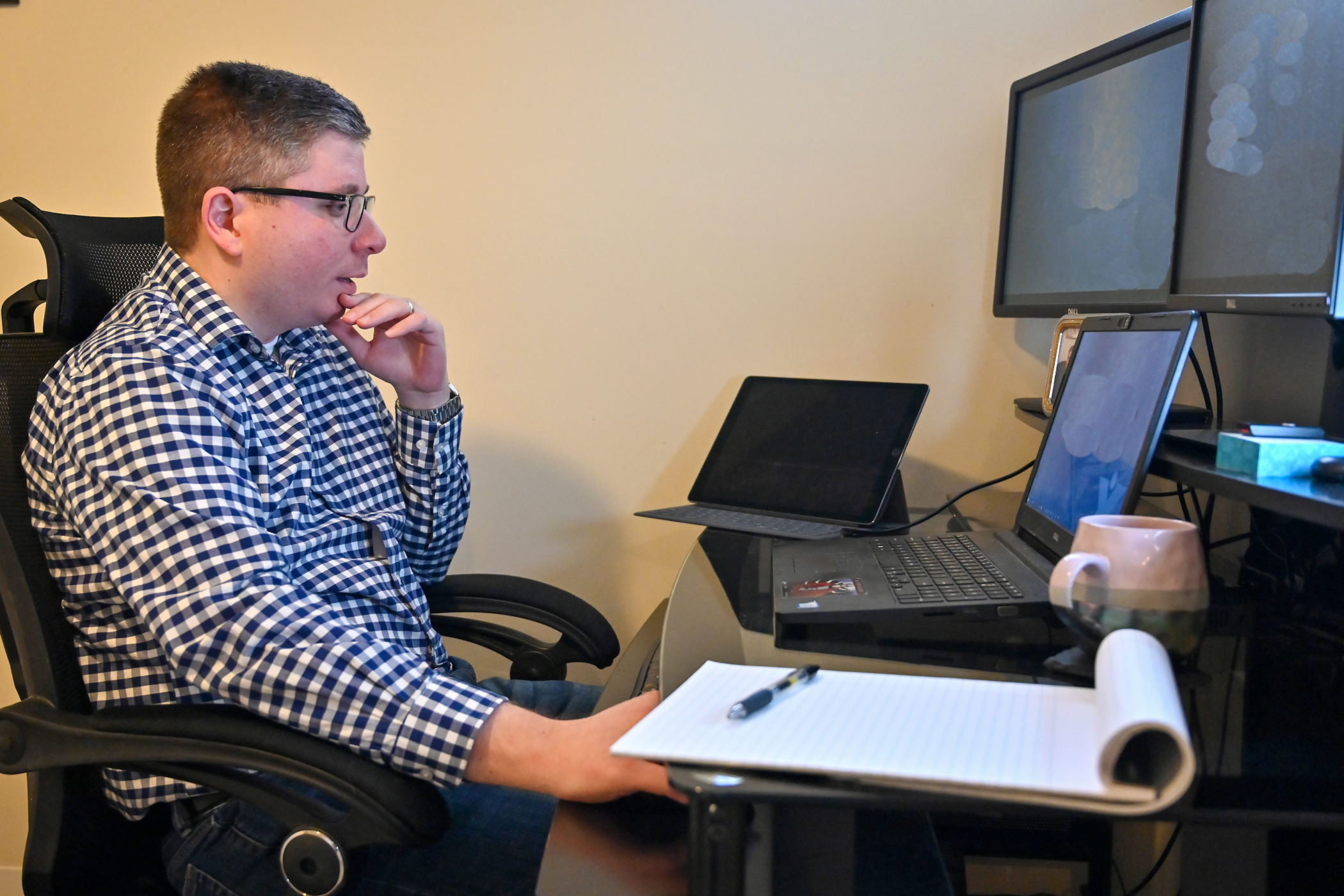Portraits of a community: The Berkshires
There’s a street in Pittsfield, Massachusetts, that serves as both a literal and symbolic dividing line between the Berkshires‘ economic past and future.
East of Woodlawn Avenue sit the last, hulking vestiges of Pittsfield’s former General Electric facility, an operation that sprawled across 300-plus acres and employed more than 10,000 at its height in the 20th century.
Directly across Woodlawn Avenue, which now links opposite sides of the once-buzzing industrial site, is a much smaller, sleeker, and newer embodiment of where the community is headed: the Berkshire Innovation Center (BIC), a multimillion-dollar collaborative initiative between private industry, local colleges, and the local government that opened in 2020.
The departure of GE a generation ago forced the community to wrestle with the loss of an economic anchor, to reimagine what it was and what it wanted to be. That evolutionary process continues to this day, led by organizations like 1Berkshire, BIC, and others — and the effort is paying off. Downtown Pittsfield is bustling with small businesses. Tech firms are putting down roots in the Berkshires. The focus is increasingly on the bright days ahead, rather than the golden days gone by.
That’s why the Center on Rural Innovation visited the Berkshires for the seventh piece in its “Portraits of a community” series. Previous installments featured Taos, New Mexico, Springfield, Vermont, Ada, Oklahoma, Portsmouth, Ohio, Red Wing, Minnesota, and Platteville, Wisconsin.
These stories are intended to shine a light on the people who make up the unique ecosystems within CORI’s Rural Innovation Network, which connects rural leaders and advocates around the country to accelerate their learning and amplify their work on the ground.
Krystle Blake
Information technology manager, General Dynamics
A decade ago, as a soon-to-be graduate of Union College, Krystle Blake was on the verge of pursuing a Ph.D. in mechanical engineering. The Schenectady, New York, native was poised to accept a fellowship at nearby Rensselaer Polytechnic Institute, but instead chose an offer from General Dynamics that seemed too interesting to say no: a spot in the company’s Engineering Leadership Program that would allow her to rotate through and explore multiple pathways over three years. Now Blake, who had been drawn to the problem-solving nature of engineering and technology from an early age, manages a distributed team of 14 for the global aerospace and defense company from her office in Pittsfield. It’s a place where Blake has found community, given back through 1Berkshire and the local United Way, and can enjoy an abundance of world-class arts and culture in her free time.
“A lot of people think of IT as, you know, the service desk — you plug in computers, you fix computers, and that’s not even remotely what we, in the organization that I support, do. We support engineering. So instead of my customer being the Navy or Air Force, my customers are the engineering employees at General Dynamics. Members of my team directly support and configure engineering tools for hardware design and product data management so that engineers can do their jobs.”
“I grew up dancing. That was a big part of my life. … And I feel like engineering and the creative side have such an important connection. Like, there’s so much creativity in engineering that people don’t think about. So I actually minored in dance in college and majored in mechanical engineering. I think, in my brain, it just works, and I wasn’t the only one who felt that way. I didn’t want to give that up when I moved to the Berkshires, so I started teaching a weekly Zumba class. It’s been a creative outlet for me ever since.”
“When I moved here, I didn’t know anyone and I got really lucky to get into a great group of friends that were all my age, mostly General Dynamics employees … and then I started to grow my roots by connecting to the community. As I got more involved, I learned that the Berkshires is kind of this wonderful place where, as you start to make connections, if you go to any Berkshires event, you’re likely to find other people that you know from several other things. It kind of has that small-town feel where you’re really connected and can be an important piece of the community just by diving in and starting to get involved.”
Liam Gorman
Founder, CozQuest and LoveLocalBRKs
Originally from New Jersey, Liam Gorman’s path to the Berkshires included stints in New York City and Los Angeles. But when he and his wife, a native of western Massachusetts, started a family, returning to where she grew up seemed like the ideal place to raise their children. In time, Gorman, whose background was in TV writing and production, became a stay-at-home dad with an idea he thought had the potential to create foot traffic — and excitement — for local businesses. He pitched the idea to the team at 1Berkshire, who recommended he seek out the help of the local EForAll Accelerator. Nearly two years later, his venture, CozQuest, has offers small media marketing for the area’s small businesses and market vendors in the form of a digital treasure hunt that rewards users with a cash prize — and an upgrade to a full-scale app is in the works..
“I had been sort of busy just hanging with the kids and raising them, and the pandemic sort of gave me the opportunity to focus on this idea. So I went to the EForAll program. And I realized this would require a lot more tech skill than I have. … I don’t have a tech background. I was hoping through EForAll I would meet somebody with some tech skills or maybe some money to pay for somebody with tech skills. But that didn’t happen. But I did realize that I could sort of build a prototype version of the concept using a website and QR codes. So I built that and on Small Business Saturday 2020 I put it to the test with one of the local chambers here in downtown Pittsfield.”
“I’m not a serial entrepreneur on any level, and I’m learning a lot of this stuff as I go. And the community has just been really great to go with whatever I throw at them. I’m currently in the process of upgrading to an app, which I’m building myself, so it’s gonna be sort of a local guide-slash-game from the perspective of what locals love in the area. It’s called LoveLocalBRKs — I’m going to hopefully launch that by the end of May. I’m not a tech guy … it’s been a pretty steep learning curve but I love it. I’ve always been a creative person with the TV stuff I’ve been doing and this is just a different canvas, I guess, in which I get to create. I love that I get to help out the community in my own little way. It’s important for me, my kids are growing up here, I want them to live in a thriving community.”
“The community has a big heart and is strong and wants to grow as much as we do. The people that I’ve been working with, people I’ve been lucky enough to get involved with — the local businesses, 1Berkshire, BIC — they all see the bigger picture and we want to try to educate the rest of the community that this is sort of the future, you know? The smaller business community that I’ve been dealing with, they’re passionate about this, and it’s exciting to be a part of that. It’s exciting to meet like-minded people who want to create economic development and have as many people prosper as we can. It’s that whole rising-tide-lifts-all-boats type of thing.”
James Kupernik
Chief technology officer, VidMob
How did a rapidly growing tech company like VidMob come to have an office in Pittsfield alongside others in world-famous cities such as New York, Sao Paolo, Chicago, and Geneva? Look no further than James Kupernik. Born and raised in the Berkshires, he held his first tech job more than 20 years ago, as a teen, developing websites for area businesses. After a year away at technical college, during which time Kupernik figured out he wasn’t learning anything new, he resolved to return home and keep working, learning on the job instead. His career path saw him work as a web developer for a local agency, and join a local startup, VoodooVox, as a network engineer and product manager. Since joining VidMob in 2015, the company has grown to employ more than 360 people and Kupernik’s role has grown with it, overseeing a distributed team of 70 — all without having to leave the Berkshires. Staying in the area has meant he can stay involved with his church, and he and his wife can continue to enjoy hikes with their corgi.
“Up until probably two months before I was supposed to graduate from high school I was fully convinced I was going to be going to music school. I had applications at Berklee and Manhattan School of Music, and auditions lined up. I was rehearsing and working with my music teacher and mentor at the time, and he asked me a really pointed question: ‘When you’re at home, in your free time, what are you doing? Are you in front of the computer? Are you picking up your horn?’ And it was a really good, thought-provoking question. I was spending my free time experimenting on this thing called the internet. During my last two years of high school I was going around the area developing websites for a bunch of companies. … It was the right kind of thing for me to kind of wrestle with, and the decision was to really kind of pursue this technology path.”
“As my career evolved I had the luck and fortune of being able to work for interesting companies and have interesting jobs that allowed me to stay here. …. And it became more important to me that I don’t work to live and I don’t live to work. For me, it’s just a thing, and part of the experience, and I like to make sure that I have the opportunity to create whatever additional experiences that I want. The proximity of Berkshires is great, right? It’s three hours from New York. I love the food scene, I love the music scene, particularly jazz, in New York. It’s very easy to go down there and experience all the things that I want to experience, but then come back and, you know, have a home with a dog, and be able to get on my bike and easily go up the road in five minutes.”
“It wasn’t hard to propose having a VidMob office here. … We put out our first job listings on Craigslist of all places, and one of the first engineers we hired was from Craigslist is still with us today, is leading one of our critical integrations teams, and we pull some people from other parts of the country. One guy who has been with us for almost five years now, he came from Michigan. We pulled somebody from New Hampshire that came down, and then we built up the team over a three-year period to about 20 — actually, I think it was like 25 right before COVID.”
Danielle Pellerin
Co-founder, Harpsen
Danielle Pellerin didn’t just boomerang back to where she grew up, she’s become a serial entrepreneur in the process — the type of enterprising professional that would make her younger self quite happy. After studying event management at Johnson & Wales, she lived in Boston briefly and came back to the Berkshires for a job with the local chamber of commerce before launching her own event planning business. That experience provided the inspiration to create a tool to solve one of the main challenges in Pellerin’s day job: a web of different software subscriptions and accounts that she felt wasn’t just demanding on people like herself but also clients. With the help of her husband, a software engineer, and a team of developers based in India, Pellerin recently launched Harpsen, an event management platform named after her two daughters.
“I think when I was little, I almost had dreams of myself in a business suit, owning my own business — like, totally extreme silliness of a little girl. But it was always, whether it was a subconscious goal when I started studying or not, I knew pretty well after the four years of college that I wanted to do it on my own. And so when I was able to land the job at the chamber it was a really crucial moment for me because of the types of relationships that I built in the community. I was able to understand my own community a little bit more, and what the need was here and then be able to, when I was ready to open my business, be able to really occupy those voids that I was seeing.”
“So about seven years ago I opened the wedding planning business. And about four years into that I realized I just couldn’t find a system that allows me to do everything from start to finish, and to be able to have the process for my clients to be underwhelming. I was finding myself on so many different types of software and tools that I was sending my clients like four or five different logins for things — and it’s my job to take all of that overwhelmingness away from them.”
“Now we’re at a point, we launched a few weeks ago. We’re in this beta-testing stage where we have some planners that are working with it, our company here is working with it. And of course, what’s different is that it’s not only marketed towards planners, but it would be very useful for photographers, weddings, anybody in this event hospitality industry. … As a sole proprietor I can get the contracts out, get things signed, get things paid, do all of that as well as set up workflows and be sure that everybody’s on top of everything. It also is very friendly for the client to make them feel secure and know they can log into this one place to see what’s going on, understand that people have been chatting and things are happening — they can really just take a deep breath and feel good about the process.”
Evaguel Rhysing
CEO, United Aircraft Technologies
Before Evaguel Rhysing and her husband, Darian, were married they were business partners. And before they were business partners, the Puerto Rico natives were acquaintances in New York’s capital region who were each looking for roommate. And the business they launched, United Aircraft Technologies (UAT), has quickly blossomed alongside their relationship. Darian developed the idea for their core product, a sensor-bearing wire harness made from a thermoplastic alternative to the standard metal harnesses found on aircraft today, after more than a decade as a military aircraft electrician. UAT’s product is at once lighter, safer, easier to install, and aims to eliminate costly time lost to troubleshooting issues. With Evaguel overseeing the business side of the operation, UAT has grown to employ a dozen people, relocated to the Berkshires, and secured multiple development contracts with the U.S. military.
“I worked in multiple businesses before, from startup to medium-size and bigger-size companies, and I always had an entrepreneurial spirit. But in Puerto Rico, that word really did not exist, back then. … I did not know the word entrepreneur or what it was. For us, entrepreneurs were Elon Musk, or Mark Zuckerberg, and that was it. It really didn’t click — you were a small business owner or you were one of those guys. And so, after working, after coming to the U.S. and working in another startup, I understood what the startup world was, and I decided to join Darian in this venture, to combine both my love for business and entrepreneurialism, but also for my love for aerospace and physics, which is my second background.”
“I enjoy building, building and carving my own path. I enjoy the challenge. I am not a 9-to-5 person — I hate monotony. Every single day is different and challenging, and I am constantly learning and I can’t wait to see what else I learn. … Right now our desks are at our home and we work sometimes until 2 or 3 a.m. But it’s something we enjoy. We like what we do. We talk to each other. But we also try to find time for ourselves.”
“I tried making friends with neighbors before, but everybody kept to themselves. And two days after I moved here, my neighbor brought me a coffee cake. I loved the recipe! She made it again for Christmas and because she knows I love it so much she gave me the recipe as a Christmas present. My across-the-street neighbors, they texted me every week, ‘Hey, by the way, trash is today.’ And I felt so welcomed by everybody, especially because they understood and appreciated my personality.”
Jonn Semexant
Network administrator, Pittsfield Cooperative Bank
By his late 20s, Jonn Semexant realized city life wasn’t for him anymore. Sure, there was convenience, the world at your fingertips, but the cost of that was a tangle of anxiety-stirring circumstances — traffic, a sense of anonymity and unending competition, a lack of space. That led Semexant, who grew up in the Boston area, and his wife to move to the Berkshires seven years ago, a change in scenery that required an adjustment period and also prompted a career change as the former high school English teacher pursued a job in IT. Now, Semexant is able to enjoy the freedom of a more rural setting — he can golf, play ultimate frisbee, and enjoy easy access to the outdoors — and a job at Pittsfield Cooperative Bank that is rewarding on multiple levels.
“When you’re out (in the city), everyone has done what you’ve done. Everyone has to go to college, and now that everyone has that, it’s a hard time getting a job, so now everyone needs to go to grad school. You go to grad school, or whatever form of continuing education you need to take, and you’re still just a number. … As much as I love the city because it helped build me as a person, I just began to have this feeling that I was just a number, that I wasn’t an actual person, I wasn’t an individual, that there’s 10 other people like me, and if I don’t want to do my job or if I don’t want to do something, then somebody else can come right in and replace me.“
“I’ve always been good at computers. I liked them. I like technology. I liked engineering aspects, but at the time, at 27, I wasn’t going to just go back to school and be an engineer. So at that point, after doing a lot of research, I realized that you don’t have to have a four-year degree in engineering or technology, you just need to have certain certifications that say you know what you’re talking about. … There’s so many different disciplines of IT. At the time, I didn’t know what I wanted to be in, I just knew that I wanted to get into that field. And, honestly, it might sound a little egocentric, but it kind of makes you feel good when you have a job that is kind of important. Like, when somebody needs you, whether it’s at work or at home, you’re able to perform that function and help — it makes you feel good.”
“When you move anywhere, there’s gonna be some give and take that you have to figure it out. I wasn’t sure at first if it was going to work here. And then I want to say on my second or third trip home that I was just like, ‘Oh, I don’t like this, I don’t like the crowds.’ … You kinda have to remember how to drive in urban areas like that — small things like that. But when you add them all up they create this big sandwich of anxiety that you no longer have to deal with. I was just like, ‘Alright, that’s enough.’”
John Sinopoli
President and CEO, Synagex
In 15 years at Berkshire Bank, John Sinopoli went from getting hired as a teller with one year of college experience to becoming the organization’s chief information officer. Along the way, Sinopoli, whose father’s family hailed from the Berkshires and mother came from Korea, learned several things. First, his interest and ability with technology could propel a career he hadn’t fully considered as a student at Pittsfield High School. Second, he didn’t buy into the prevailing economic narrative about his hometown, which had been rocked by the departure of General Electric. And, lastly: His experience in larger organizations left him wanting to make more of an impact. All of those factors — and an encouraging nudge from his wife — pushed the father of two to start his own IT firm, Synagex, five years ago. The company has since hired a dozen employees, serving clients across the state as well as other parts of the country.
“We’re passionate about the area. Both my wife and I grew up in, in Pittsfield, so, you know, the idea that we could come back here and potentially make a difference and change some of the narrative in a place where there was a lot of negative thought about the future of the area — all of those things kind of contributed to us coming back. … You start to question the negative perspective a little bit. Why do we have to have a big employer there? Why can’t we do something else? Why can’t we be more creative to get things on track?”
“I was just missing something. I was grinding my teeth at night feeling like there was more to life. So eventually I found my way to starting Synagex and serving the small- to medium-sized business market to me has kind of filled that hole. And we’ve been fortunate enough to grow that business on the combination of the skills in corporate life and a passion for technology and a passion for service and human connection.”
“For me, all of it is fun. I love challenge. I love the wild, I call it — owning, starting a small business is like walking into the woods with a backpack and nothing else. I enjoy that freedom. I enjoy the fear and conquering the fear. But the best part of it is getting a team on board that supports that passion, and trying to build a culture in the company. … It’s actually introducing life balance into a work day. It’s not that you’re here to grind, give us eight hours, and then go home and have a different life. We genuinely believe that work and life is blended together, and if you spend 8-10 hours a day here with us, it should be fun, it should be flexible, it should be fulfilling.”
Leo Yantovsky
Cyber defense manager, Berkshire Bank
Like so many of his peers who graduated in the wake of the Great Recession, Leo Yantovsky was ripe for a job — the market was not. He returned home to Pittsfield from the University of Massachusetts with a degree in finance and operations management but had to settle for a series of service-industry jobs until a job as a teller for the Pittsfield Cooperative Bank opened up a career path Yantovsky had brushed aside years earlier. Yantovsky, whose family emigrated from Ukraine when he was 8, had always been good with computers but didn’t know what that could mean for a profession. But it clicked when the bank promoted him to an IT-adjacent role after just a year and a half. That trajectory has only continued for Yantovsky, who later joined Berkshire Bank as an enterprise applications administrator and is now its assistant vice president for cyber defense.
“I was always just naturally good with computers and was interested from a young age. I remember the first computer I ever bought like I saved up at my first job that I had and I actually wanted to buy it piece by piece and build it myself. But my parents wouldn’t let me so I ended up buying a pre-built one and the first thing I did was take it apart and put it back together again. … When I wound back up doing that like for a job, I realize this is where I’m meant to be and it didn’t really fully click until like I was in security when that’s when I’m like realizing like this is what I was meant to do. It just felt right. I like constantly learning because it’s everyday. It’s like a very fast-moving environment.”
“I left and didn’t think I would be coming back here. I thought I was going to go get a job, but I couldn’t. Nothing. No one was hiring. People were but it was almost impossible to get in. Everybody wanted experience. But, yeah, I moved back and I just started working. … I got accepted to the Berkshire leadership program here in Pittsfield, which is run by 1Berkshire. And after doing that, that’s when I thought, ‘You know what, Pittsfield, the Berkshires, has a lot of potential.’ I just kind of fell in love with the different things that Berkshire County has to offer. The culture, the evolution of that, it’s getting better. It’s more vibrant.”
“There’s a lot of people that want to strive for better and improve, and it’s a very caring community — I mean, it gave my family a new home once upon a time. There’s a lot of nonprofits and places like 1Berkshire that are really trying to improve the whole community and make it better, to help the economy. Honestly it’s why I have committed so much time to volunteering, giving back — I was on the board of the immigrant center for several years. I’m on the Pittsfield Economic Development Authority, which is actually trying to fill out the old GE spots, clean up the land, and bring in new business.”
It doesn’t end here.
The Berkshires is a great example of what can happen when America’s small towns embrace the hard work required to reimagine what is possible and begin creating digital economy ecosystems that can meet the future head-on.
Through its Rural Innovation Initiative (RII), CORI’s work makes it possible for local leaders to connect and learn from each other in a community of practice. RII communities have a range of resources at their fingertips to help implement what CORI has identified as Direct Drivers of vibrant digital economy ecosystems:
- Access to Capital
- Scalable Tech Entrepreneur Support and Incubation
- Inclusive Tech Culture Building
- Access to Digital Jobs
- Digital Workforce Development and Support
Each of these elements allow rural communities like the Berkshires, Red Wing, Platteville, and others to compete in the broader tech economy.
Learn more
To meet the Rural Innovation Network communities doing ecosystem building in small towns across the country, you can find a list here.
If you are a community interested in working with us to grow or build your own digital economy ecosystem, please contact us.
To learn more about our work in this space, be sure to check out our blog and sign up for our newsletter.

